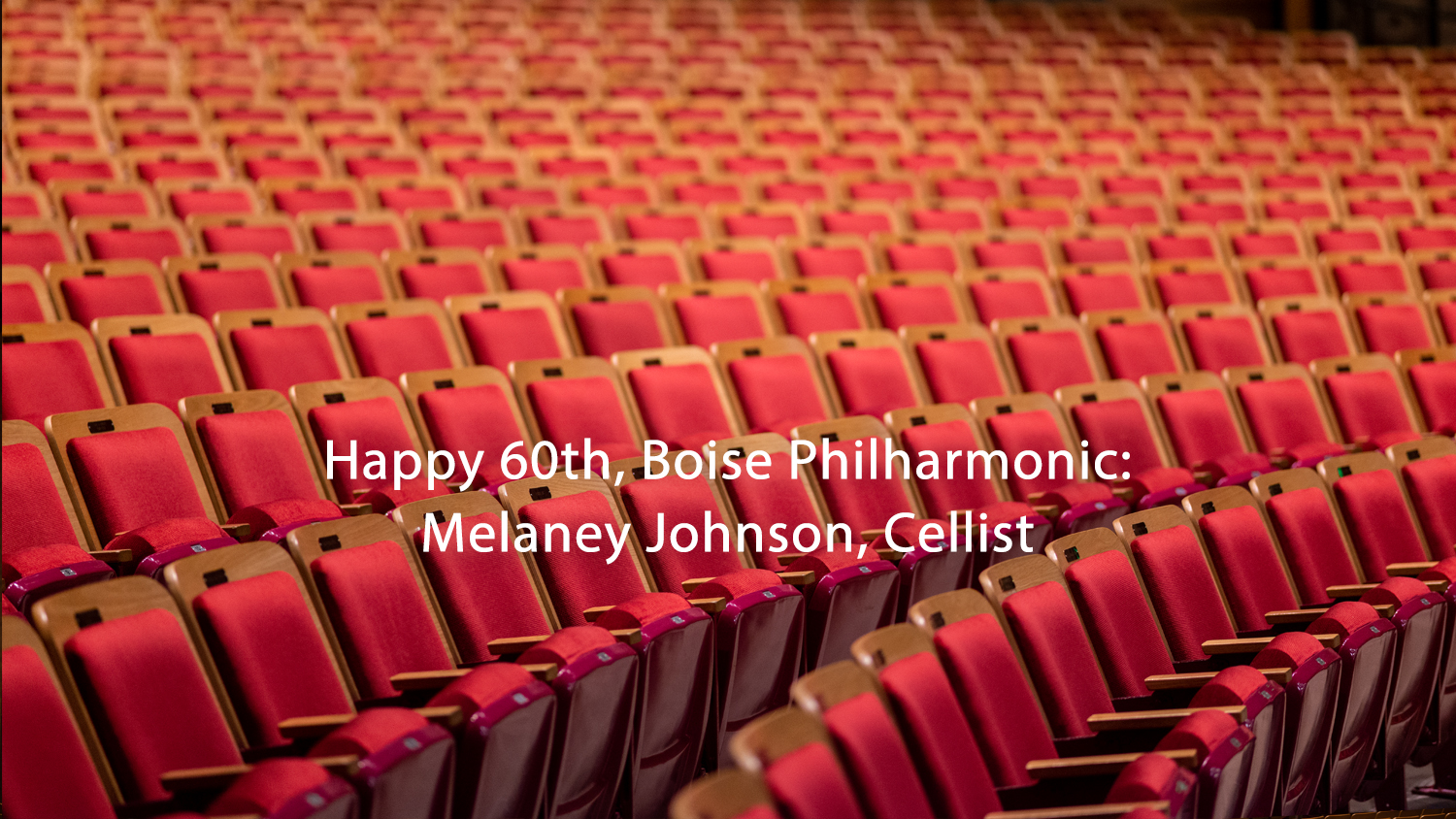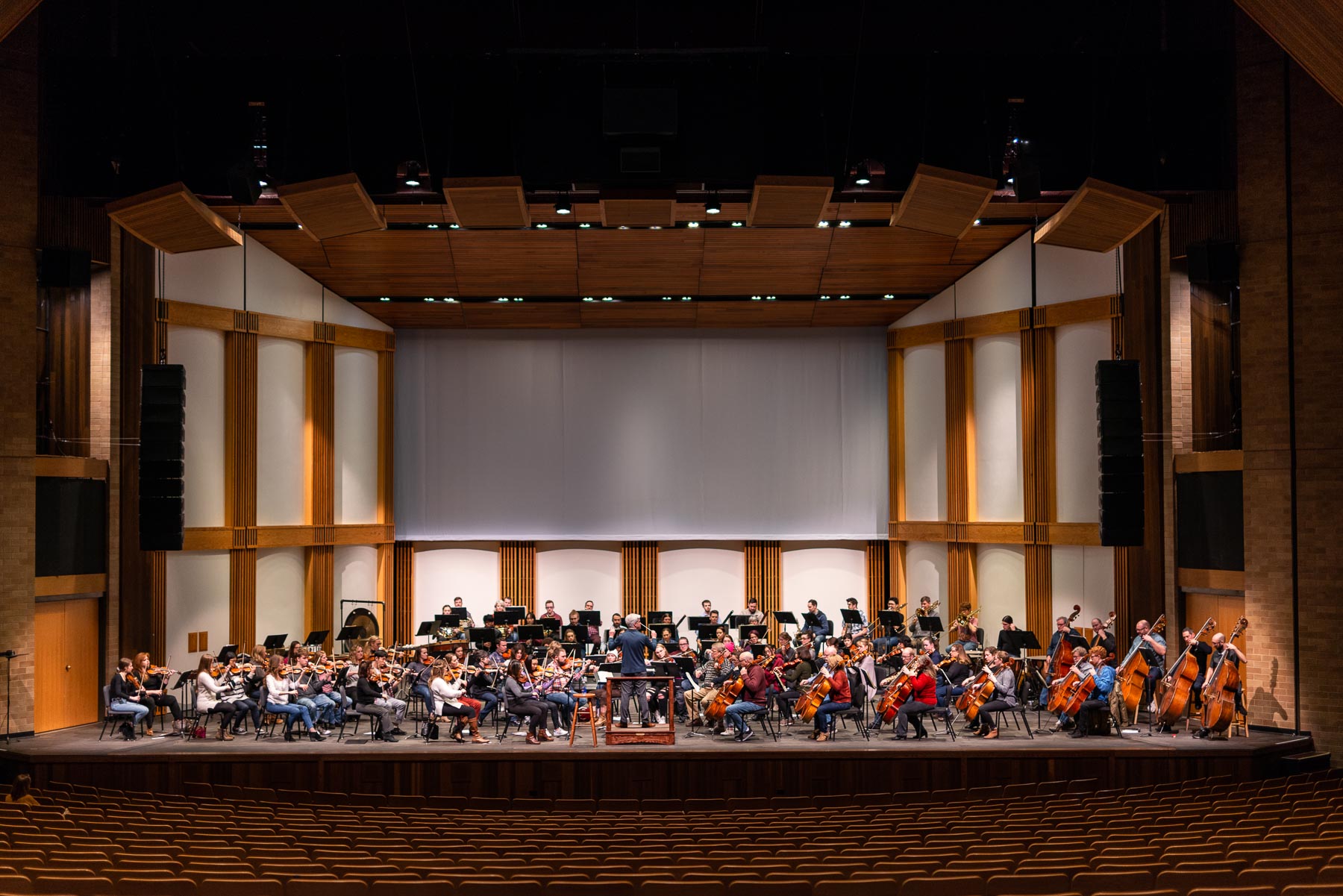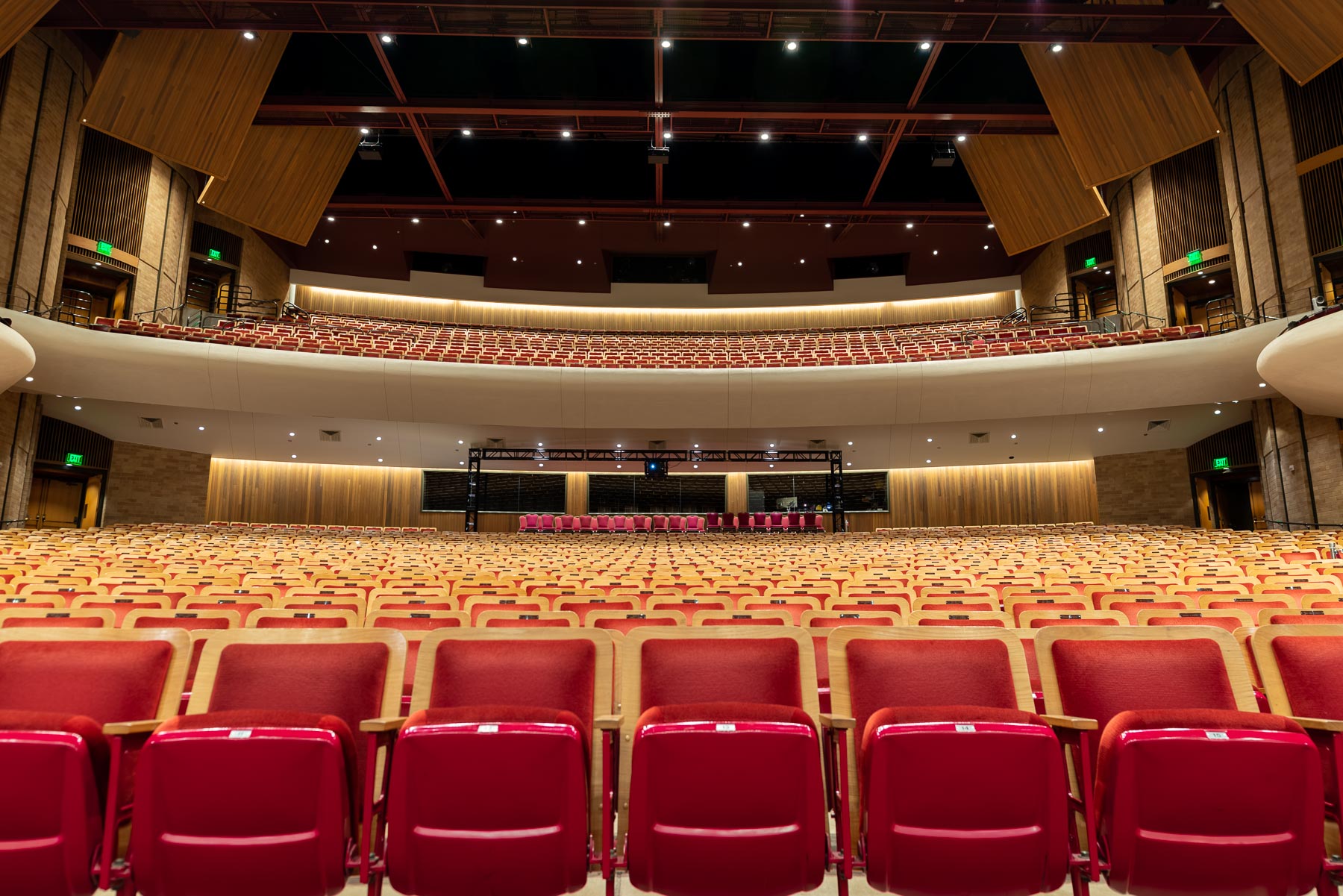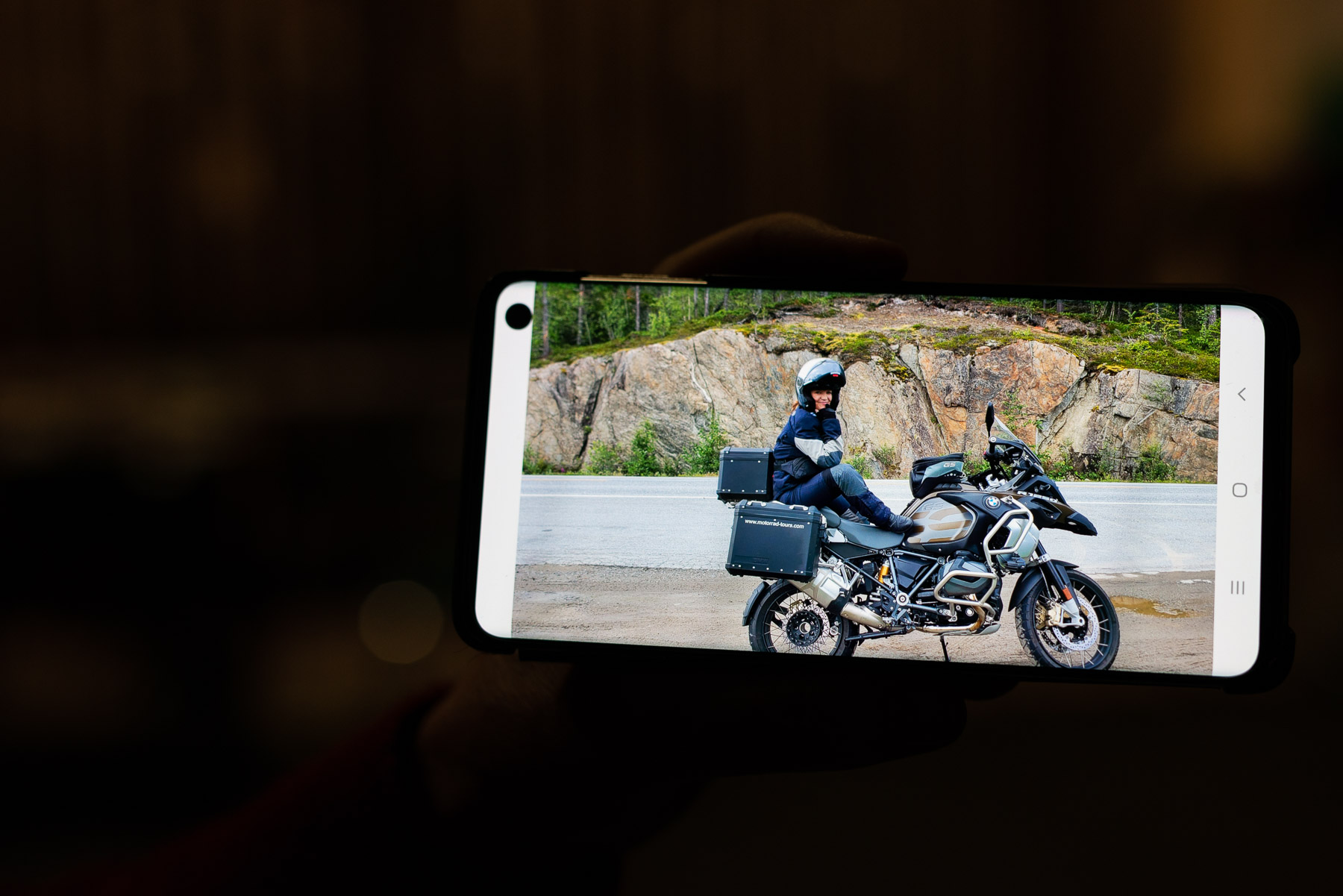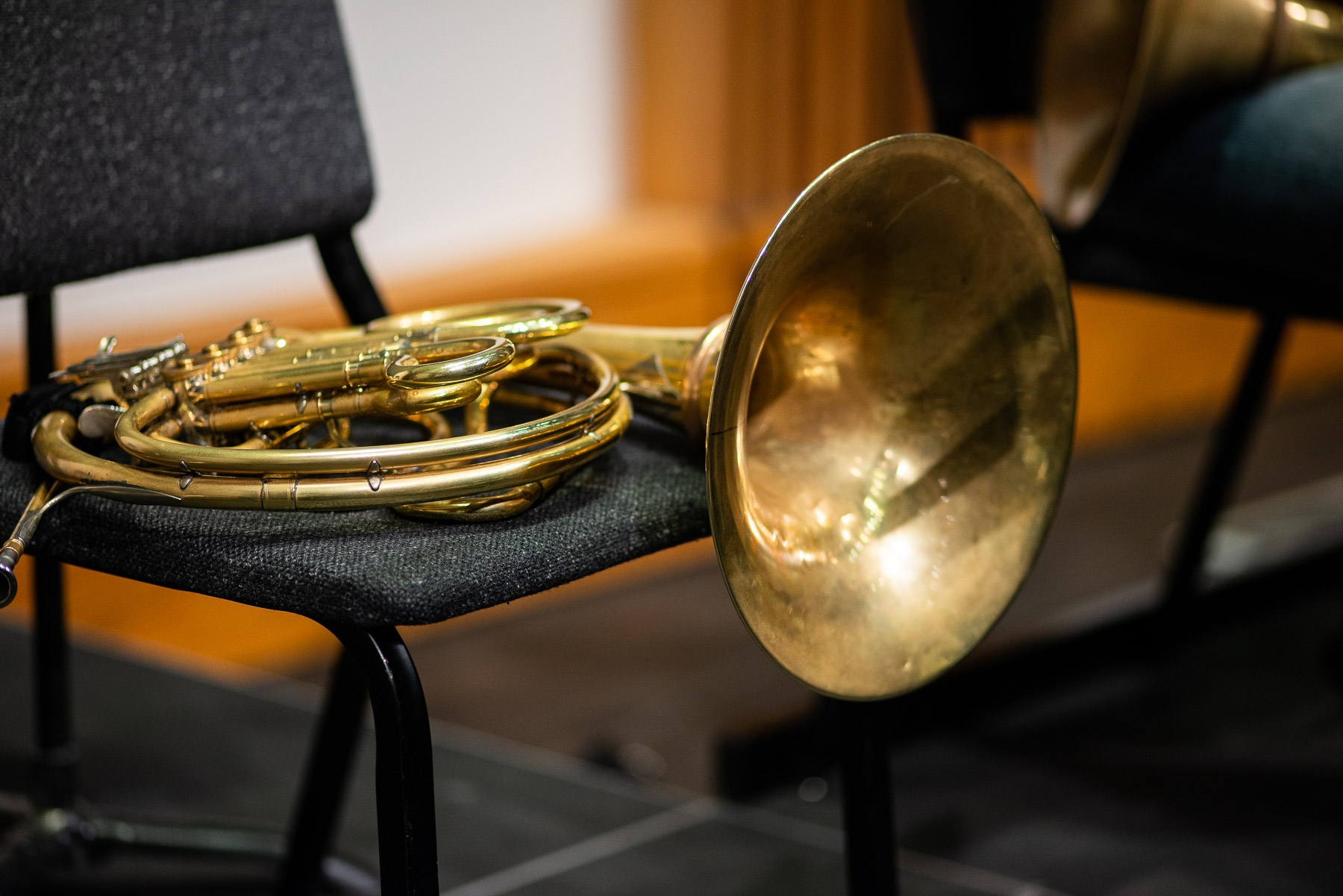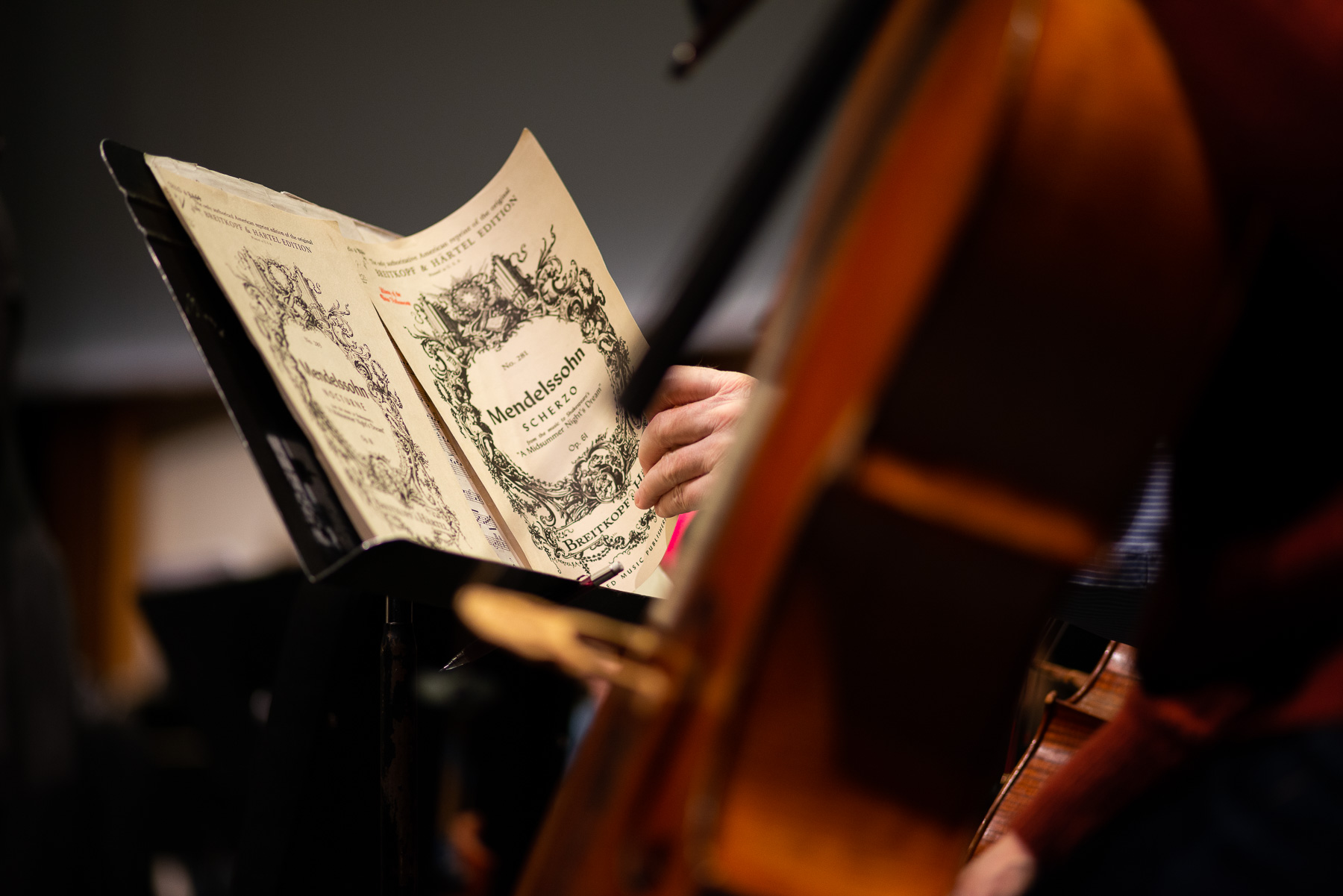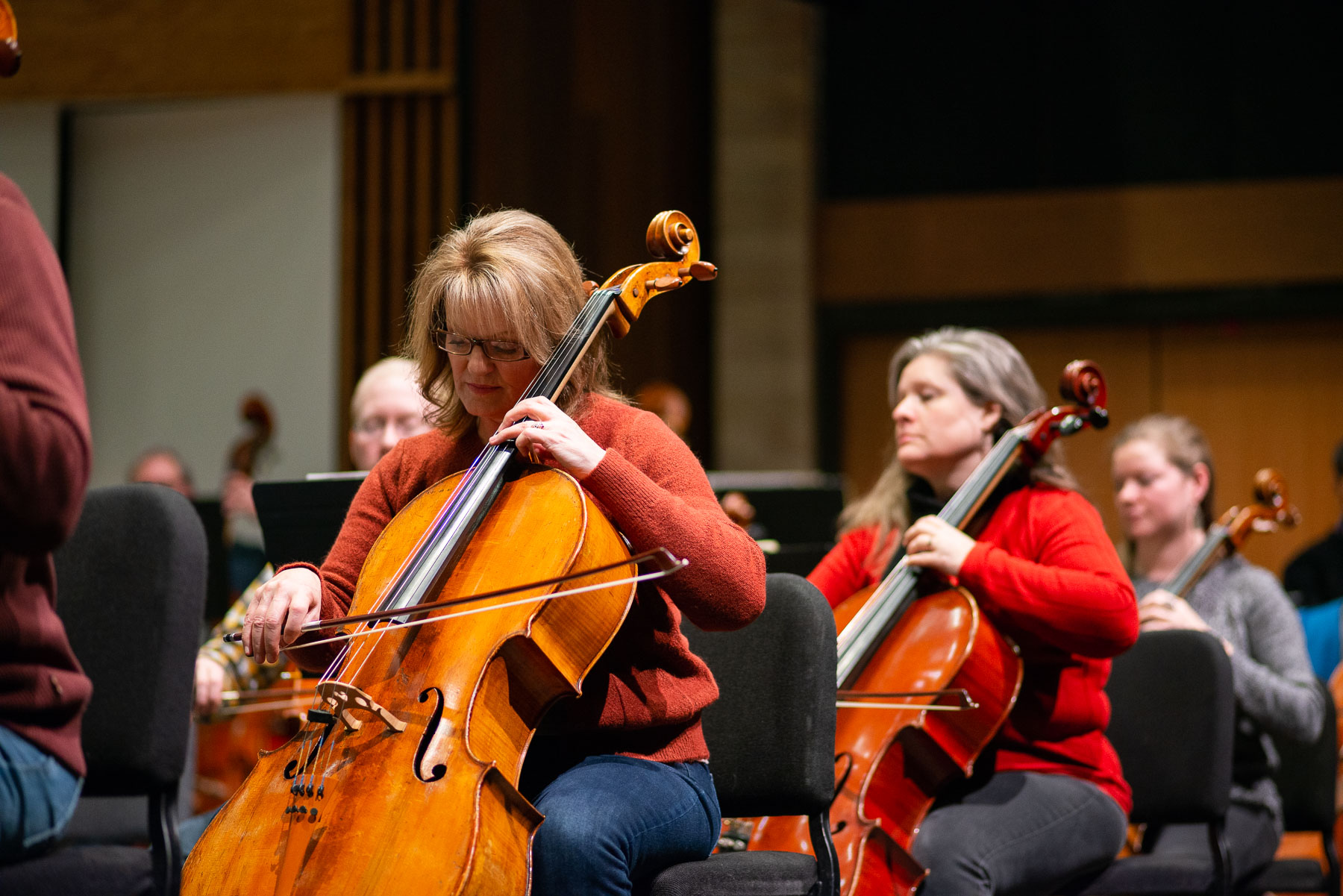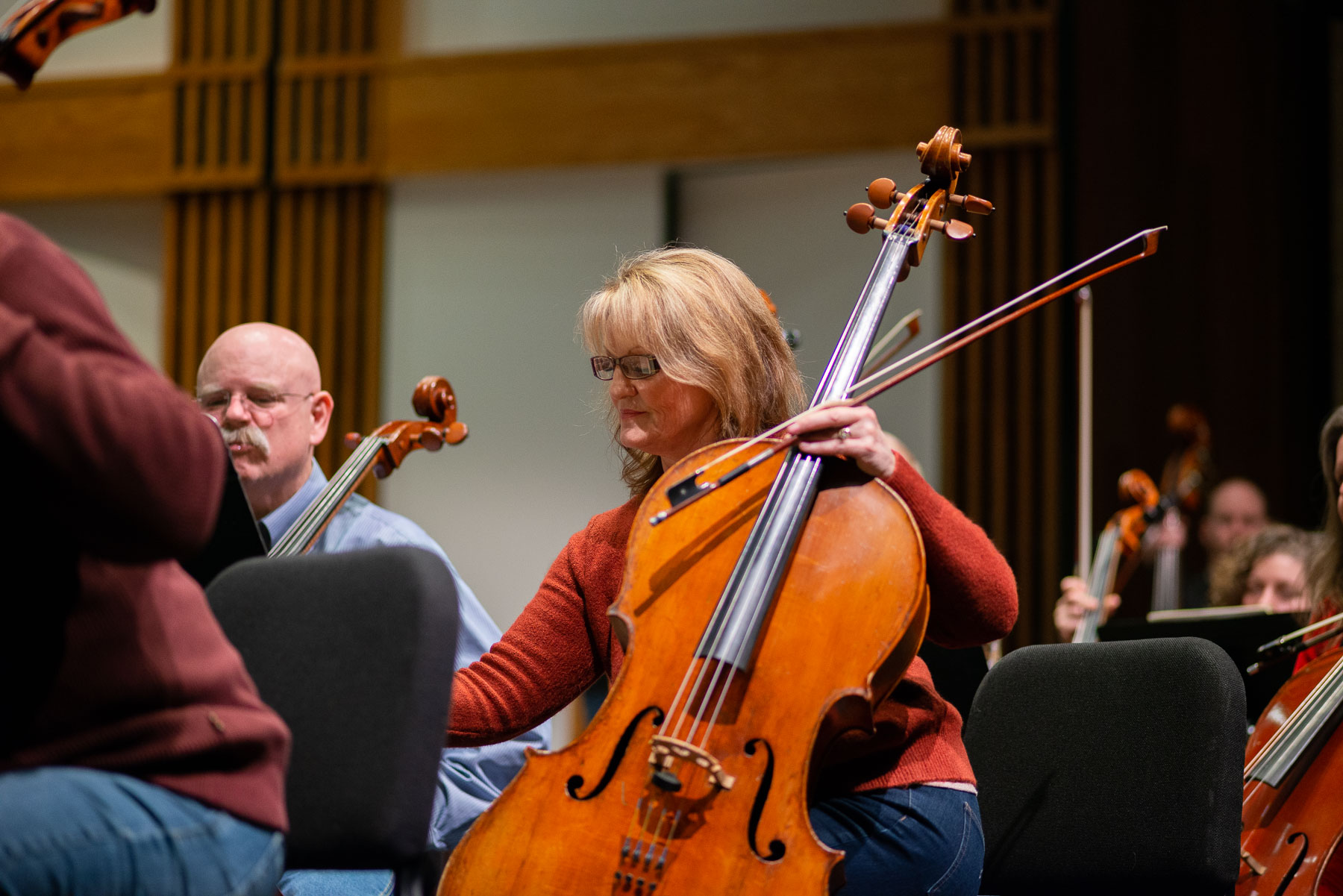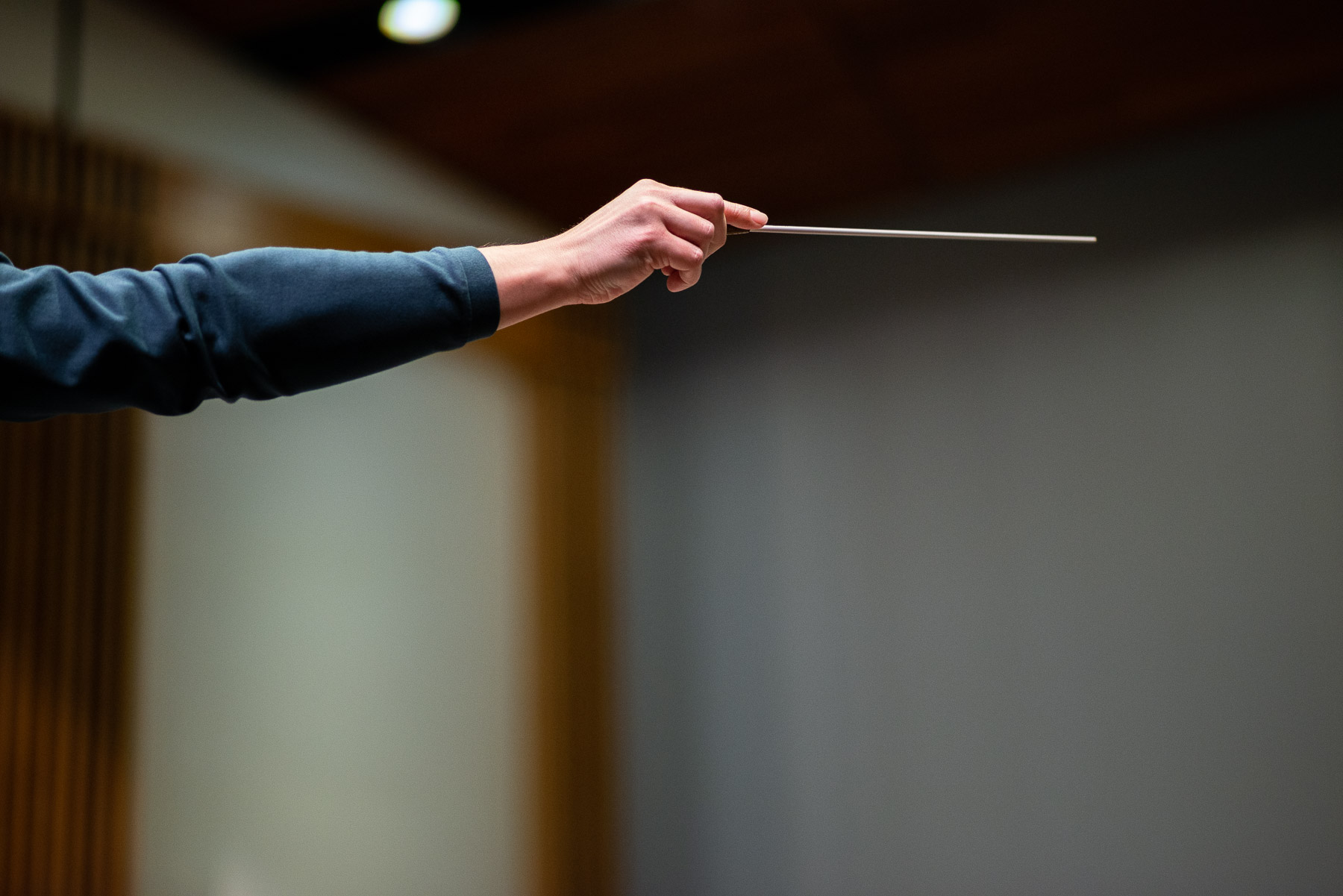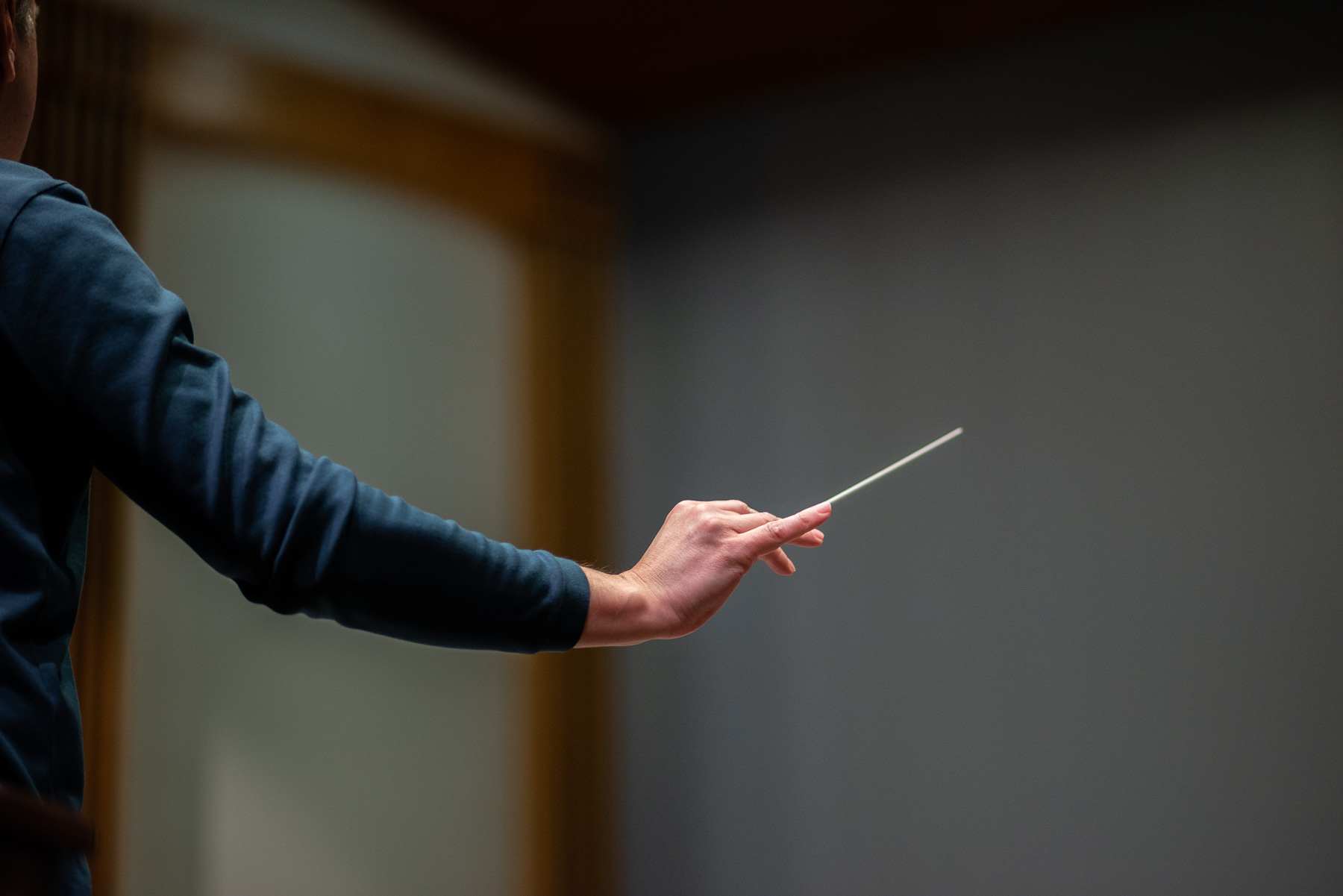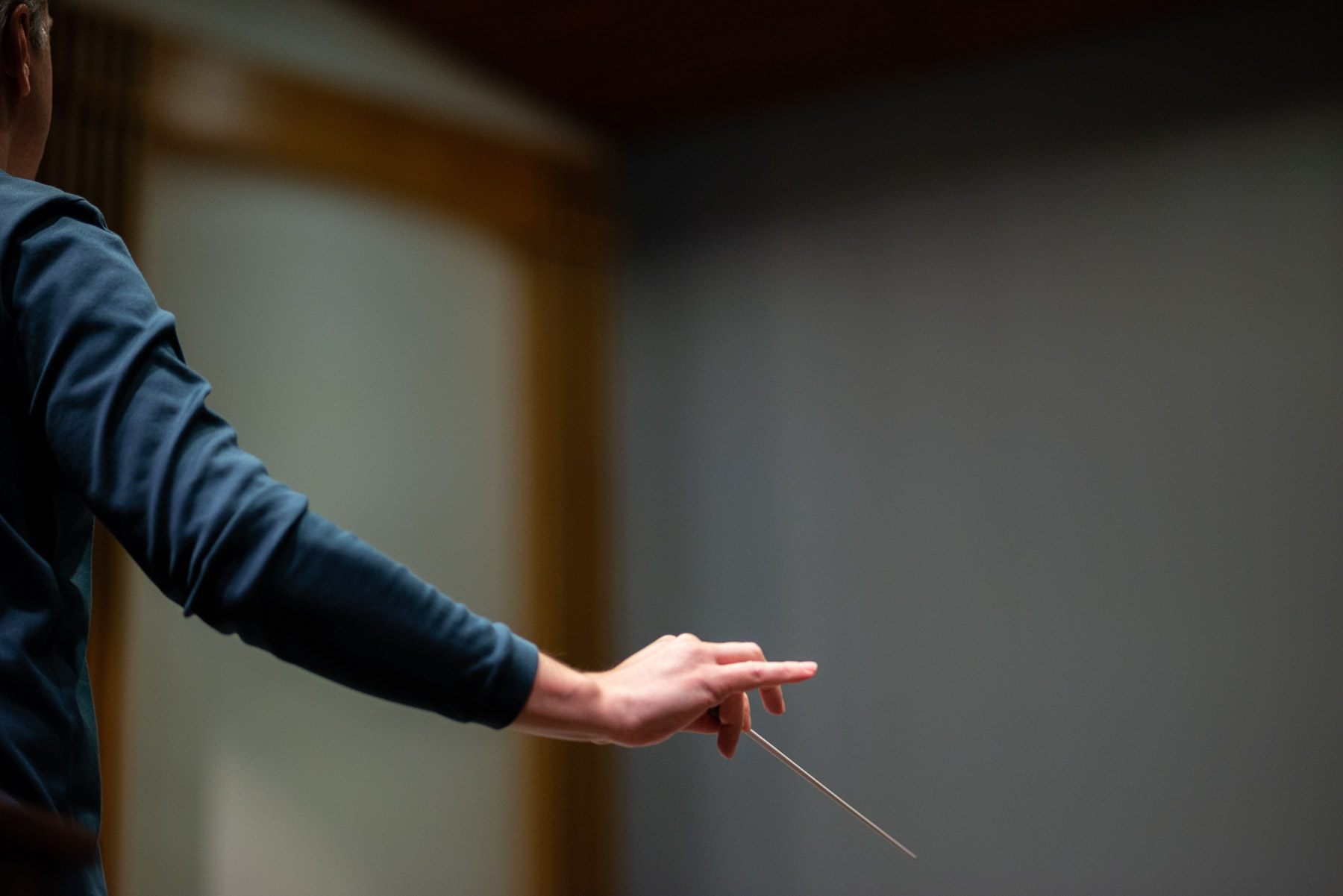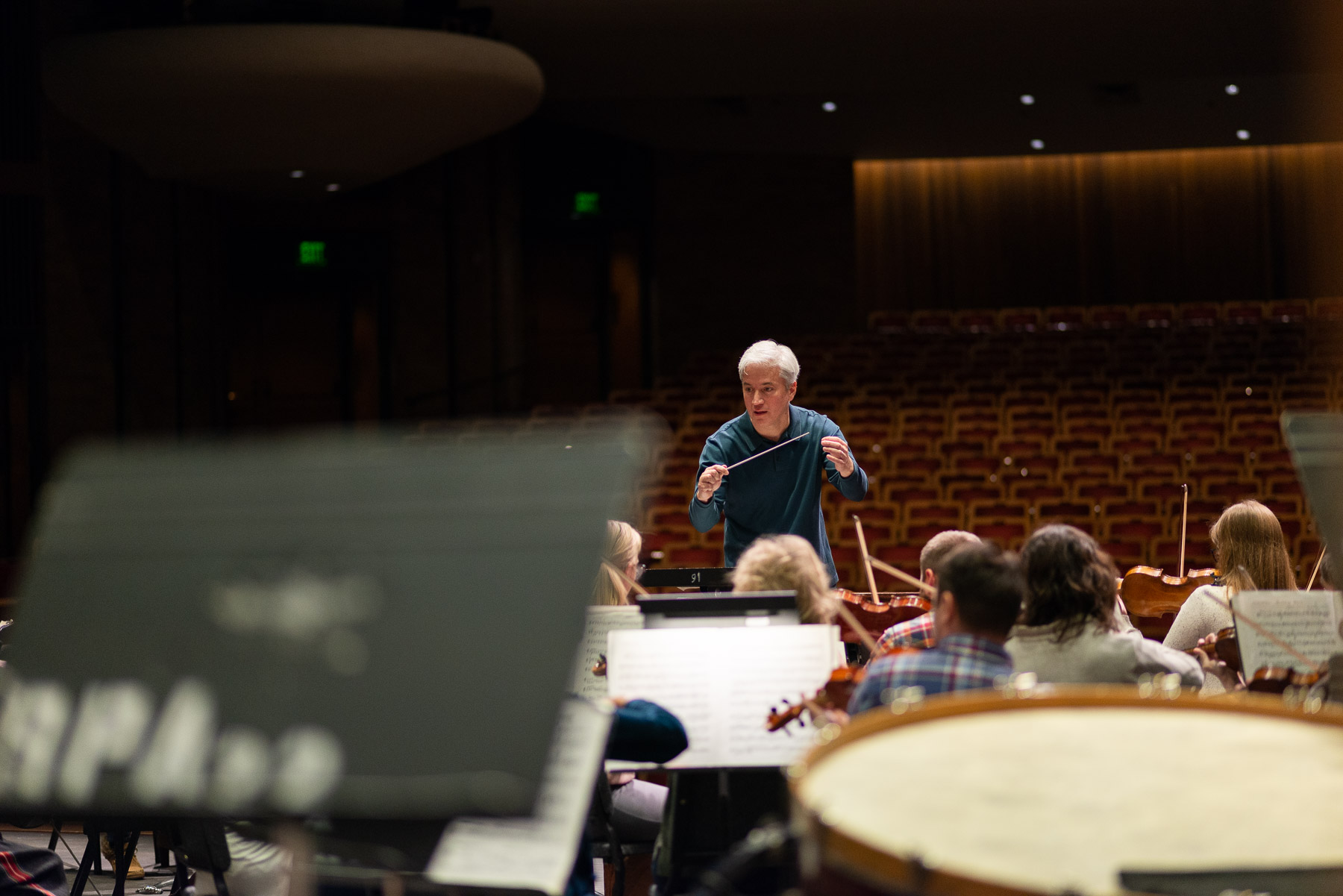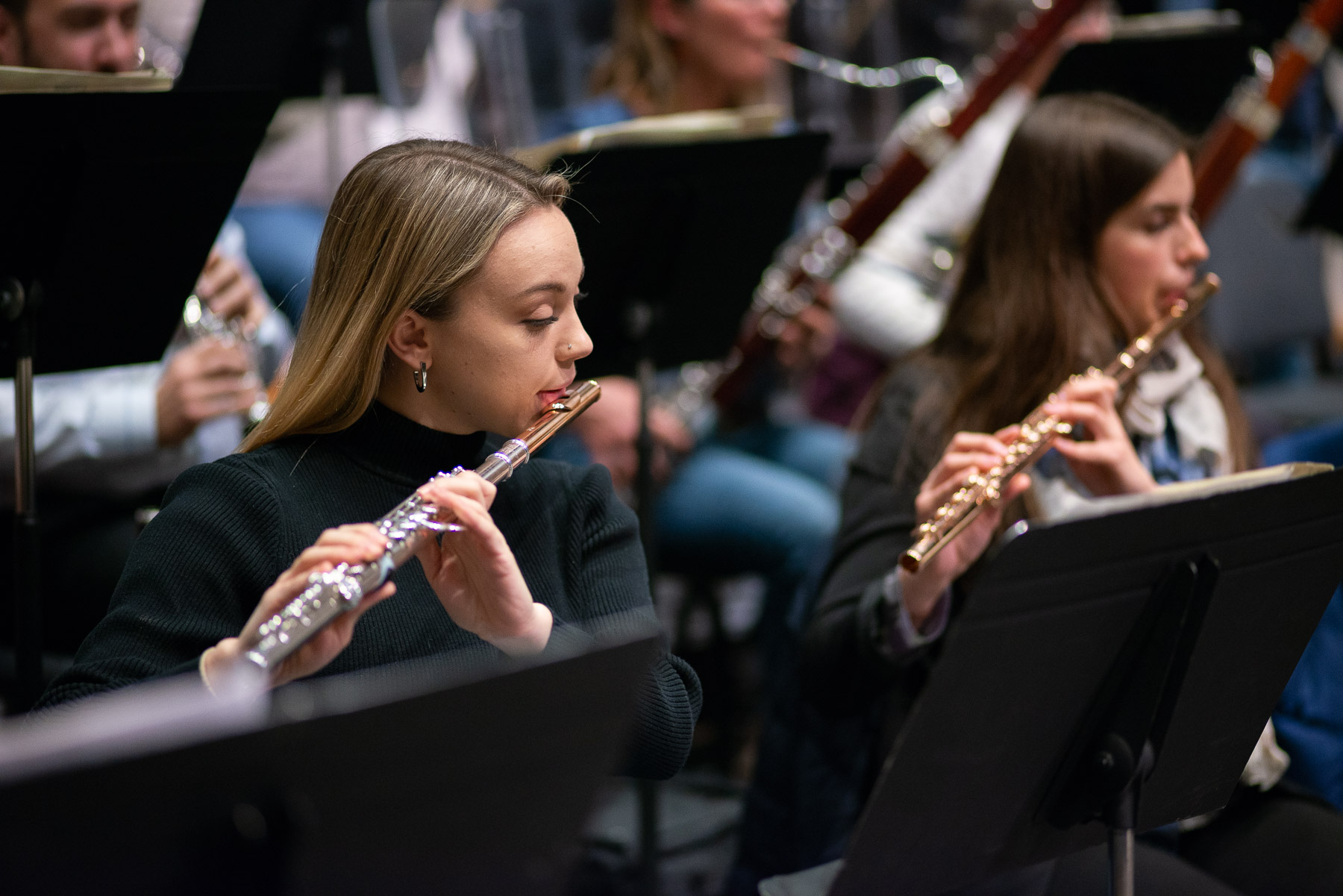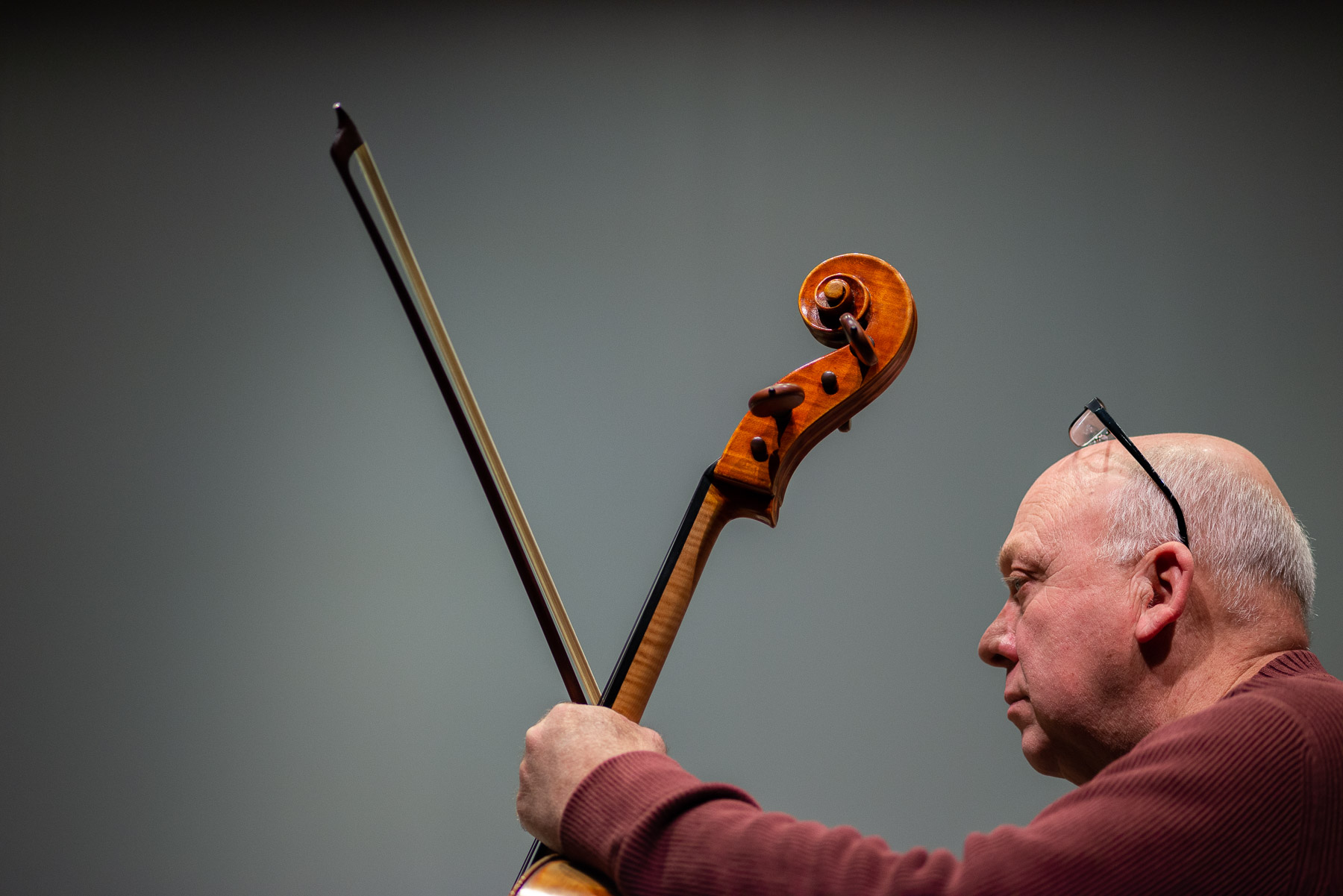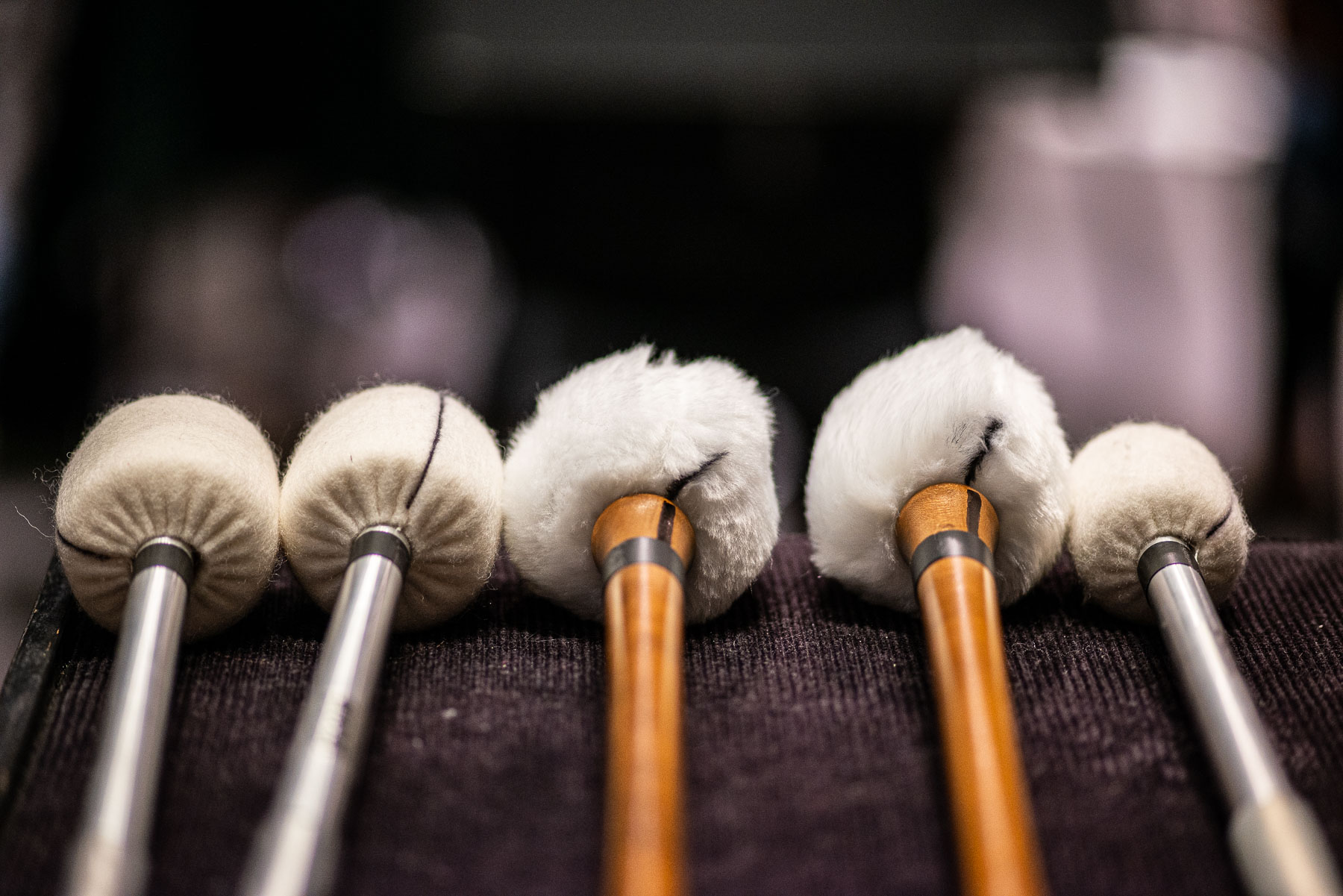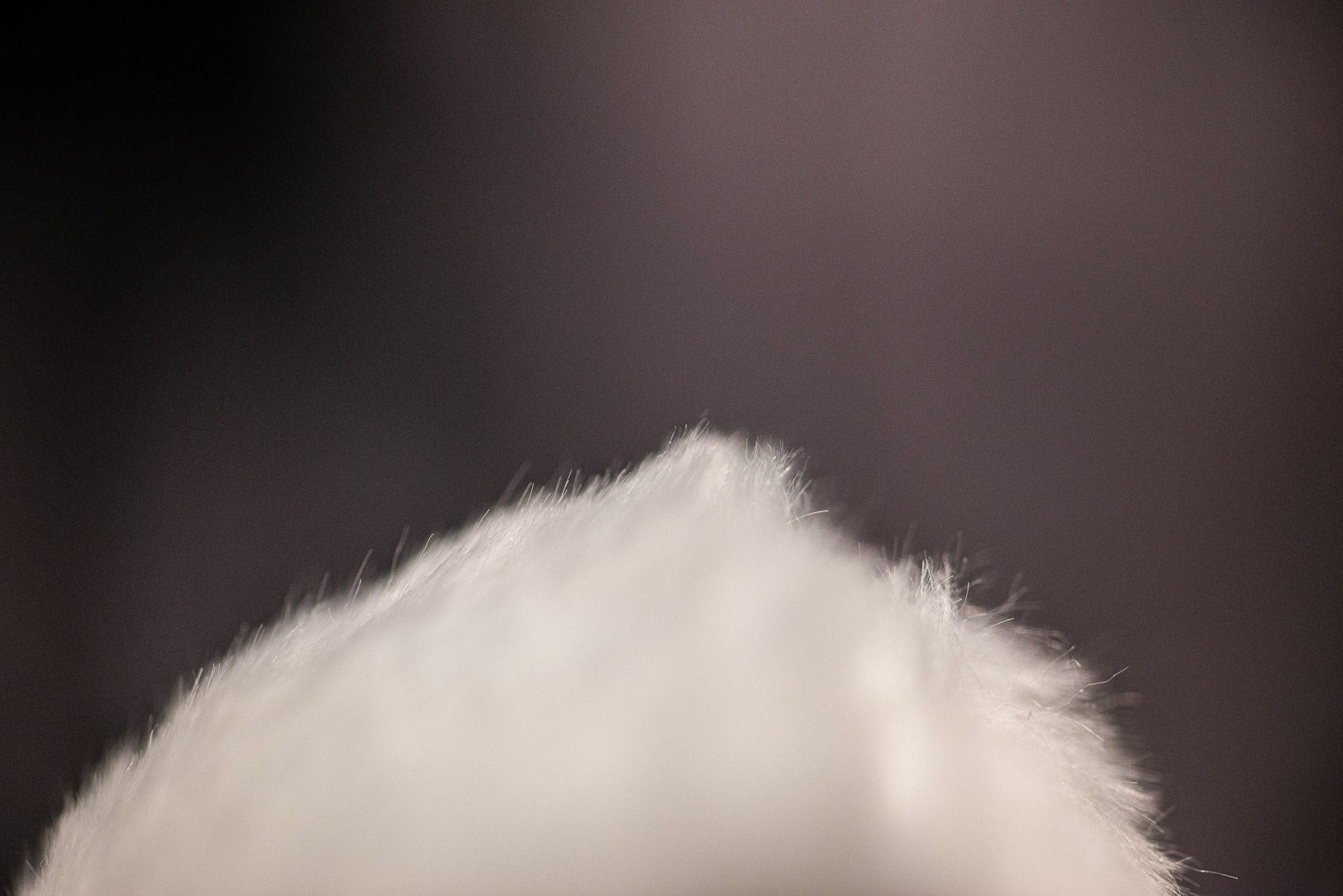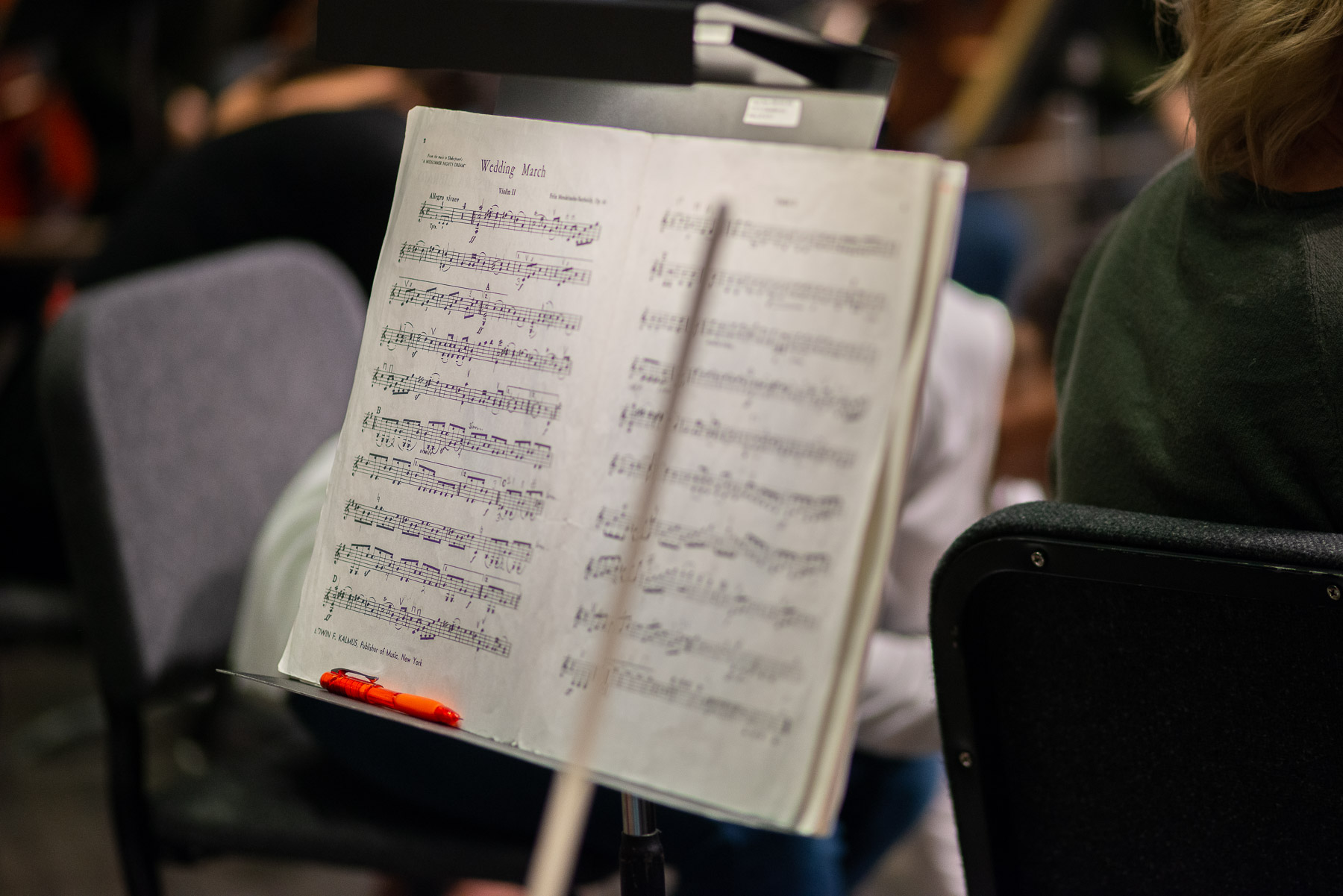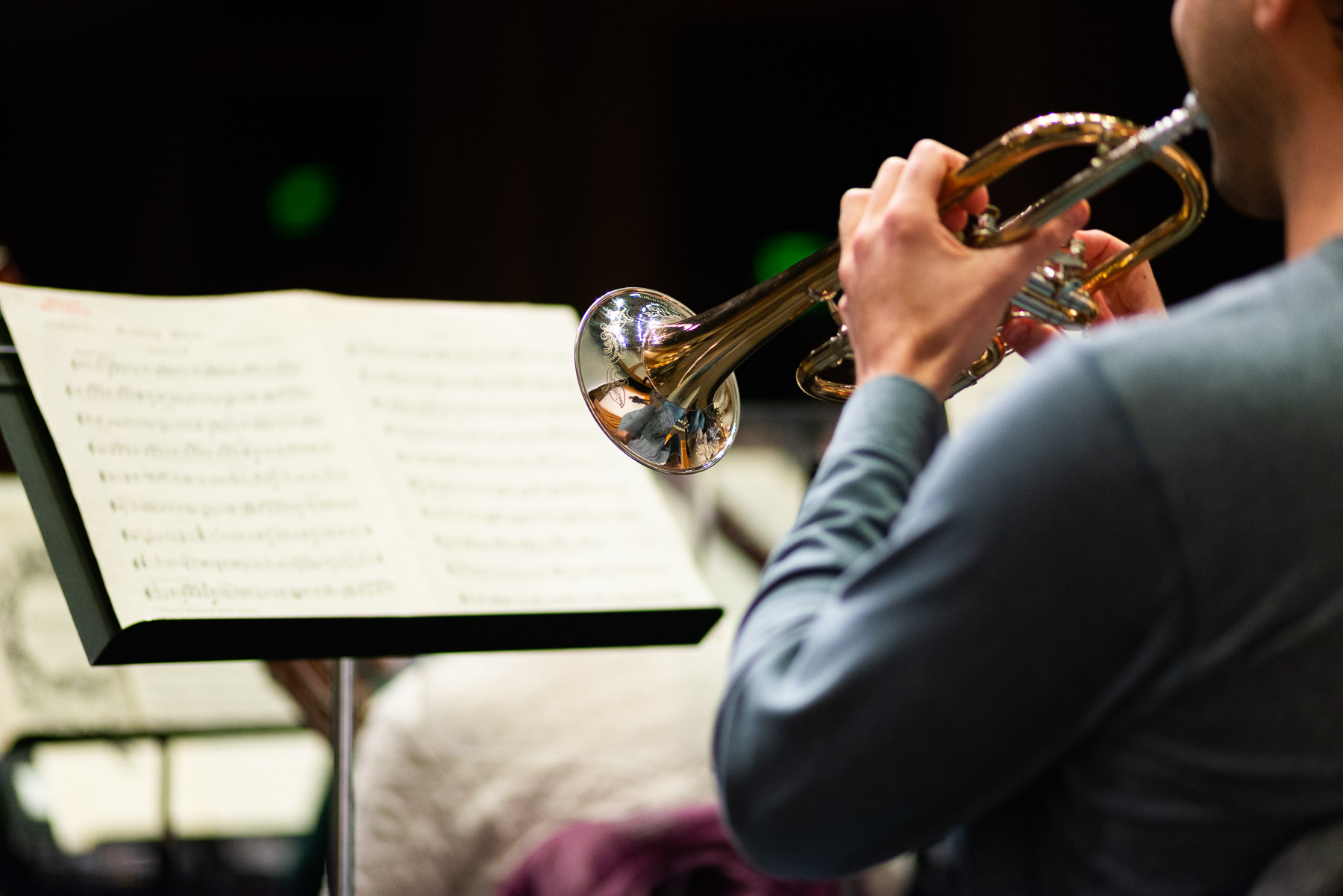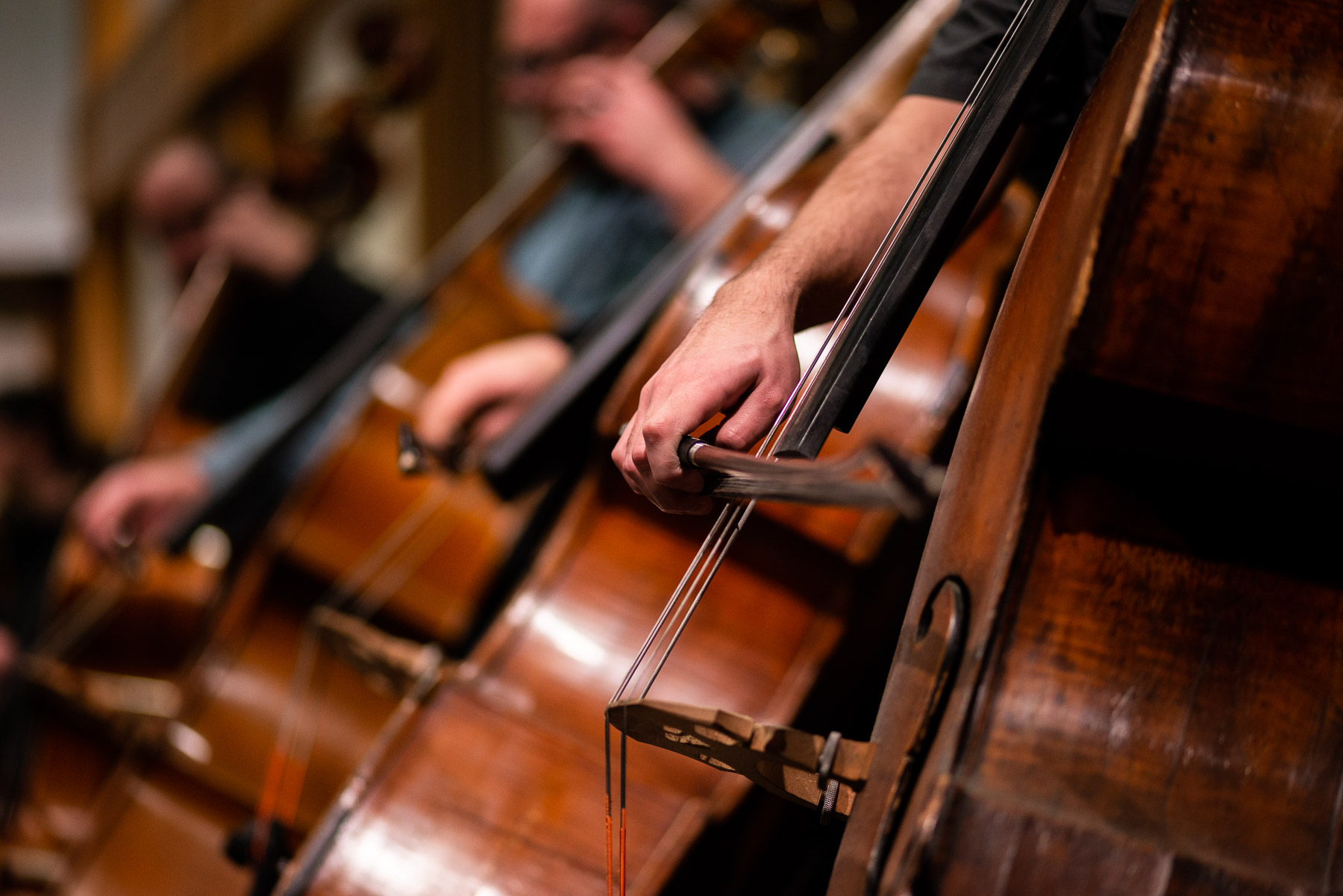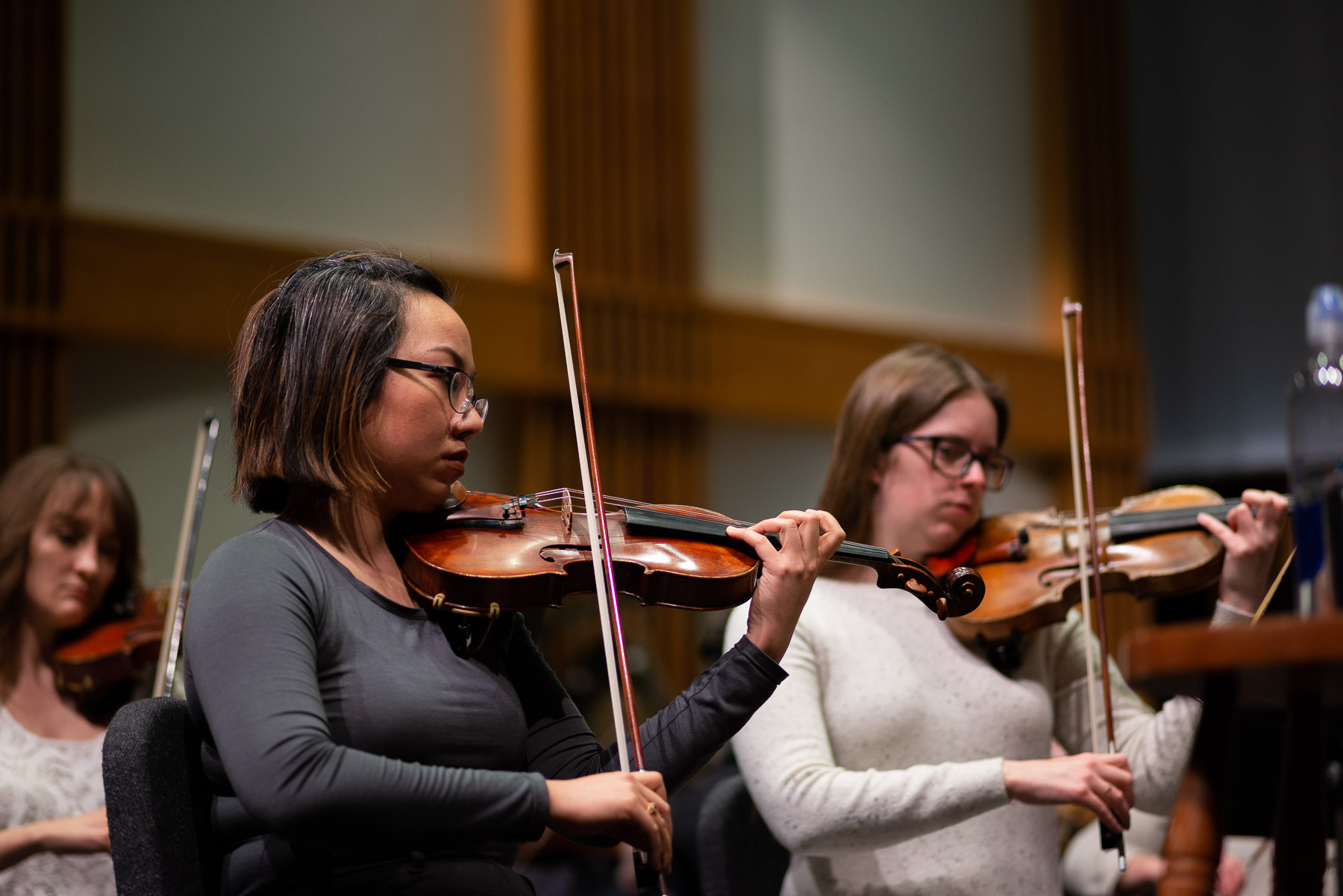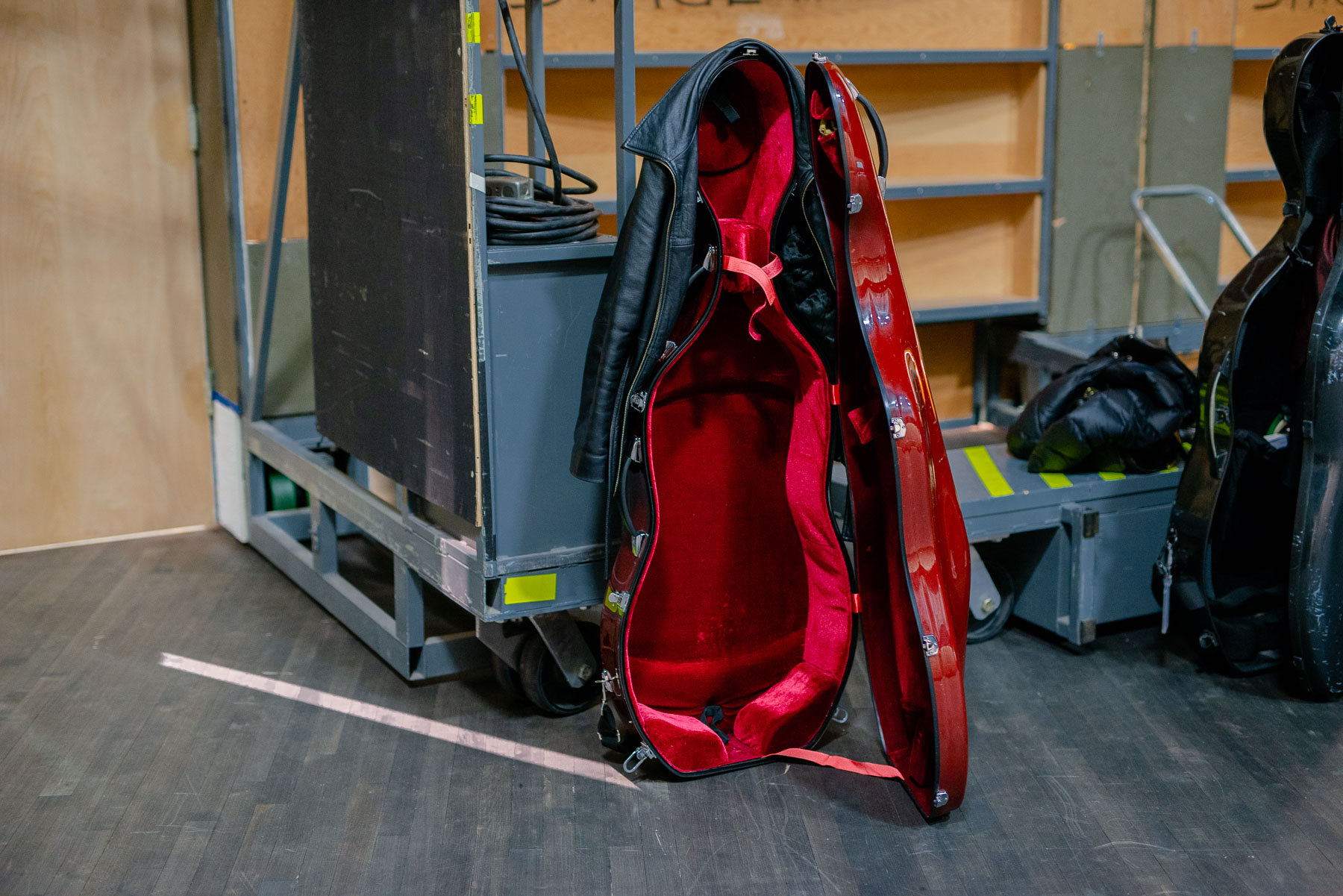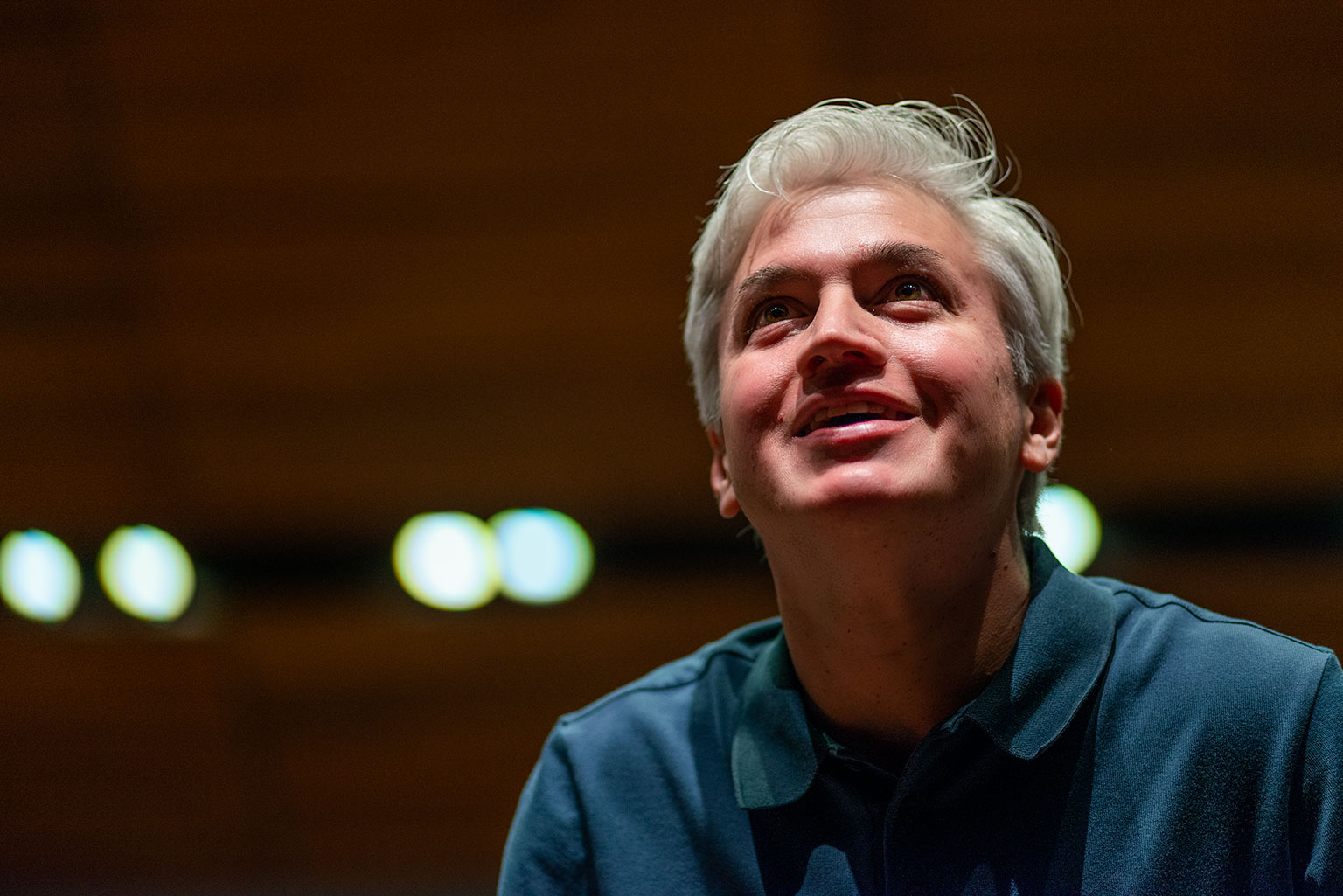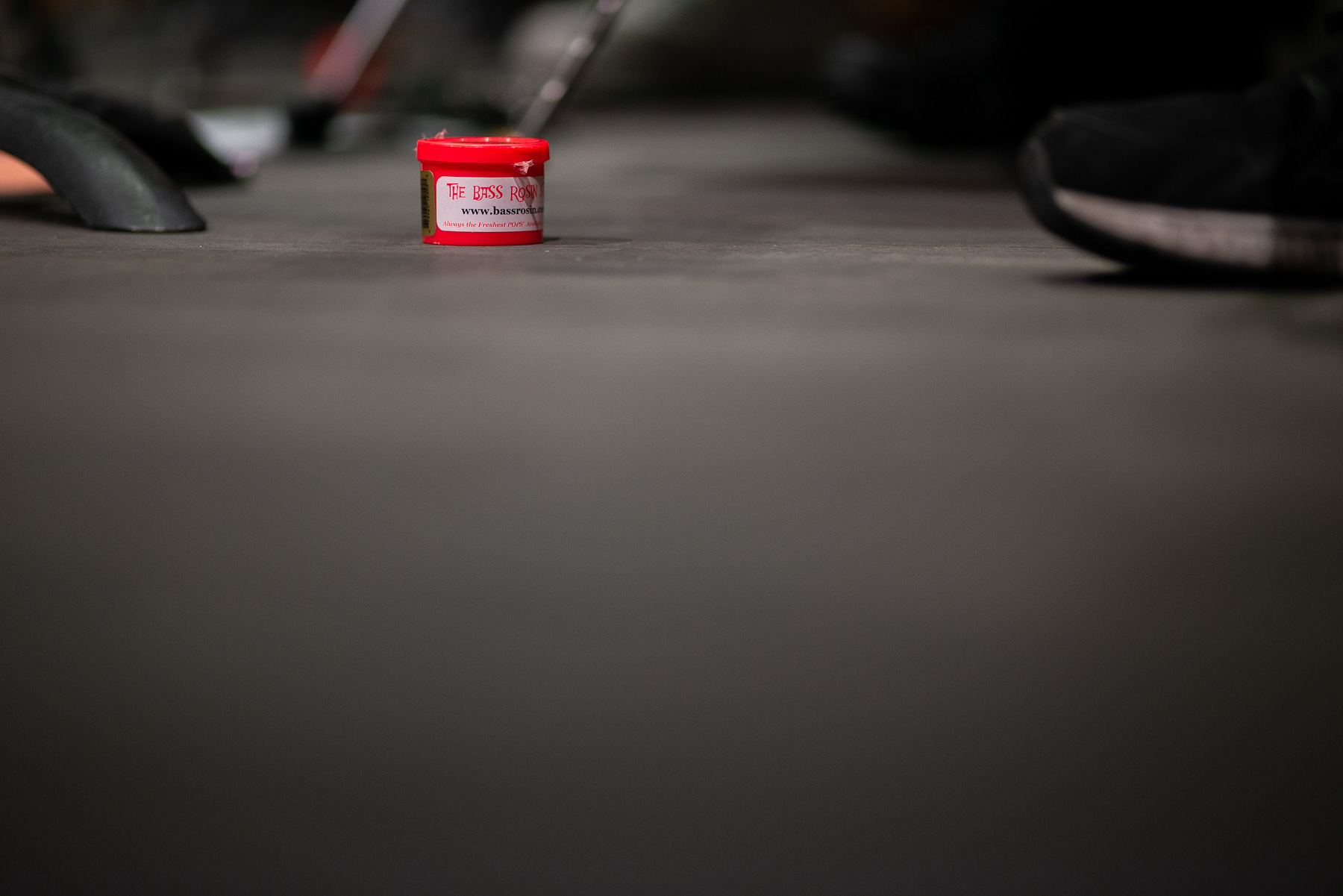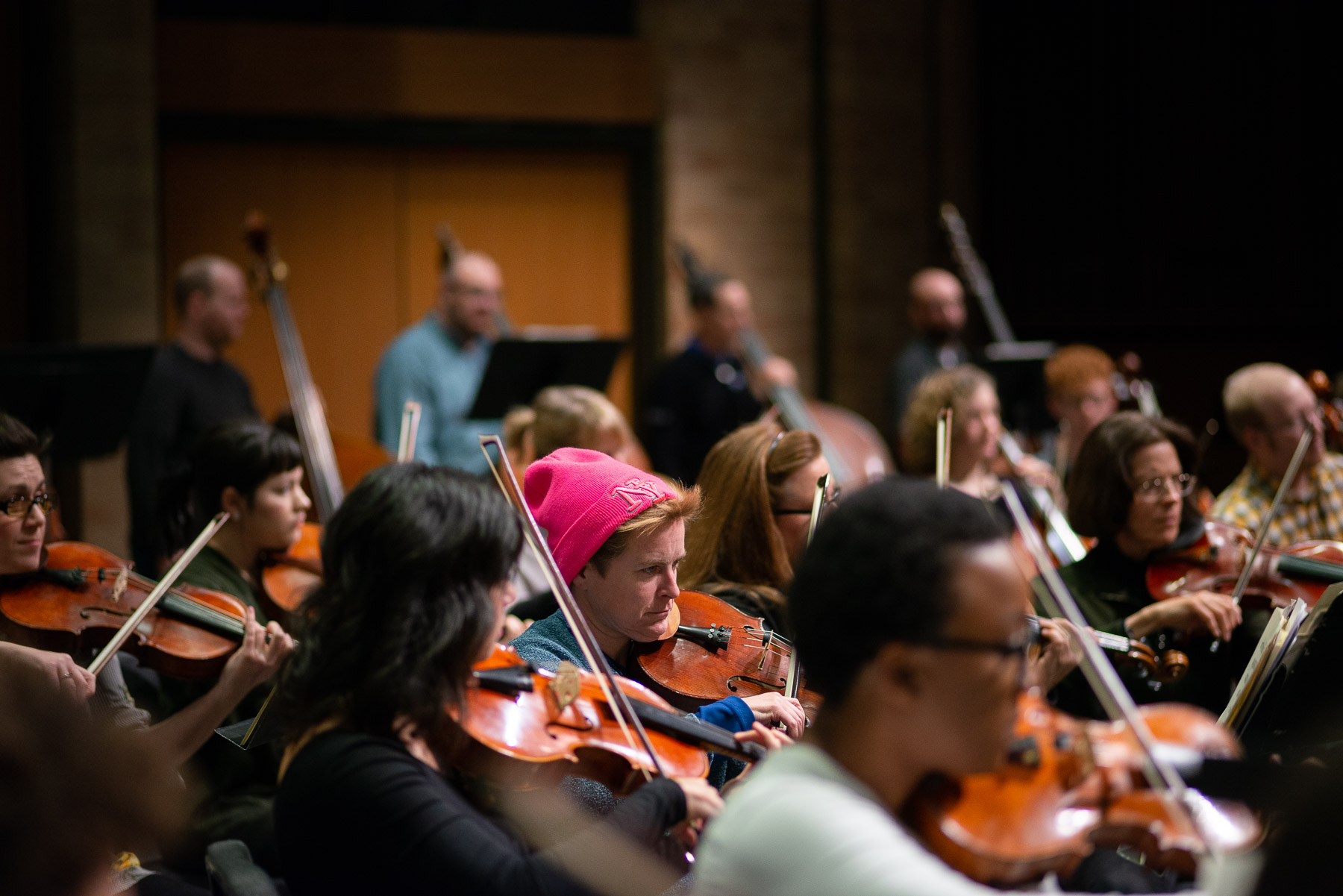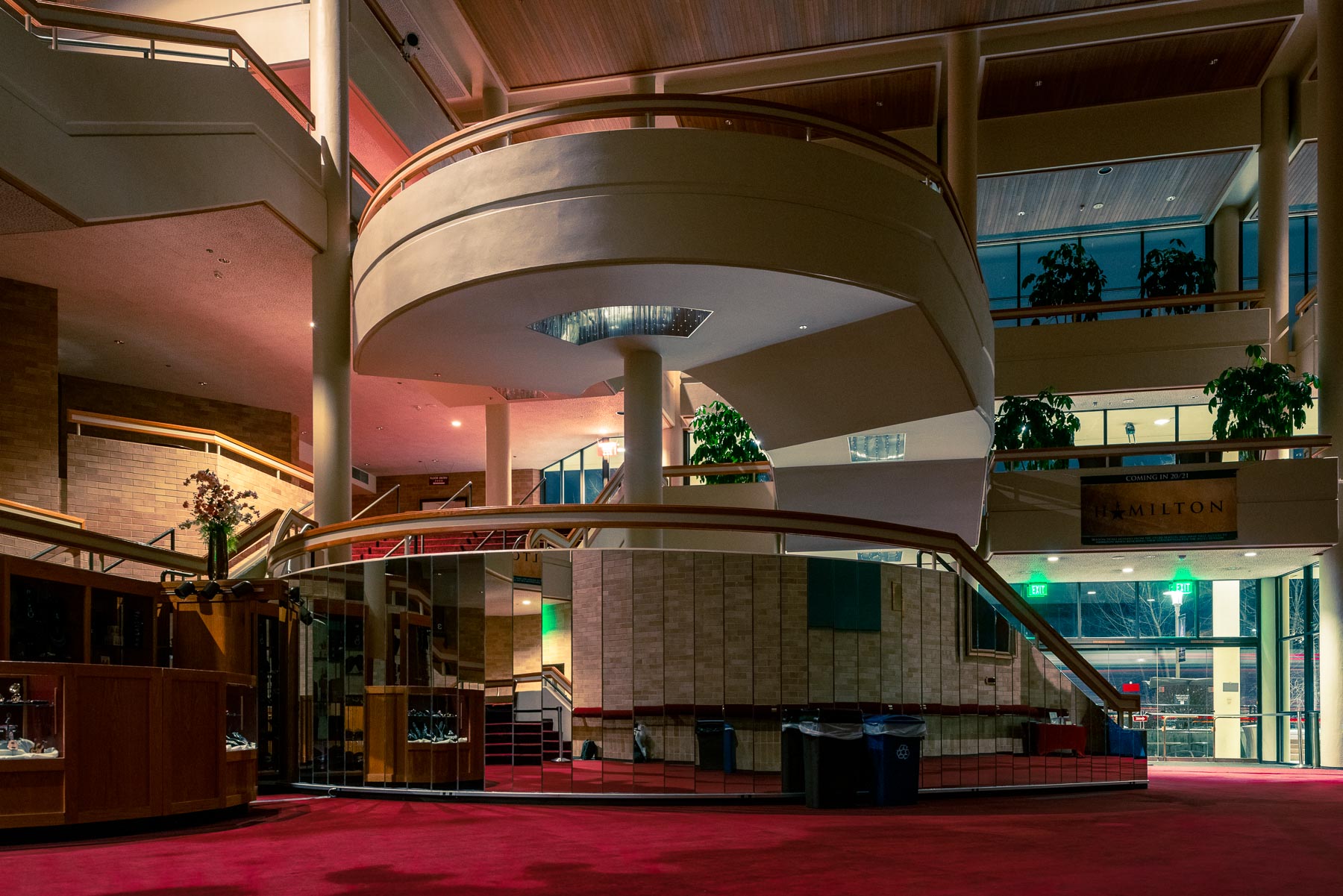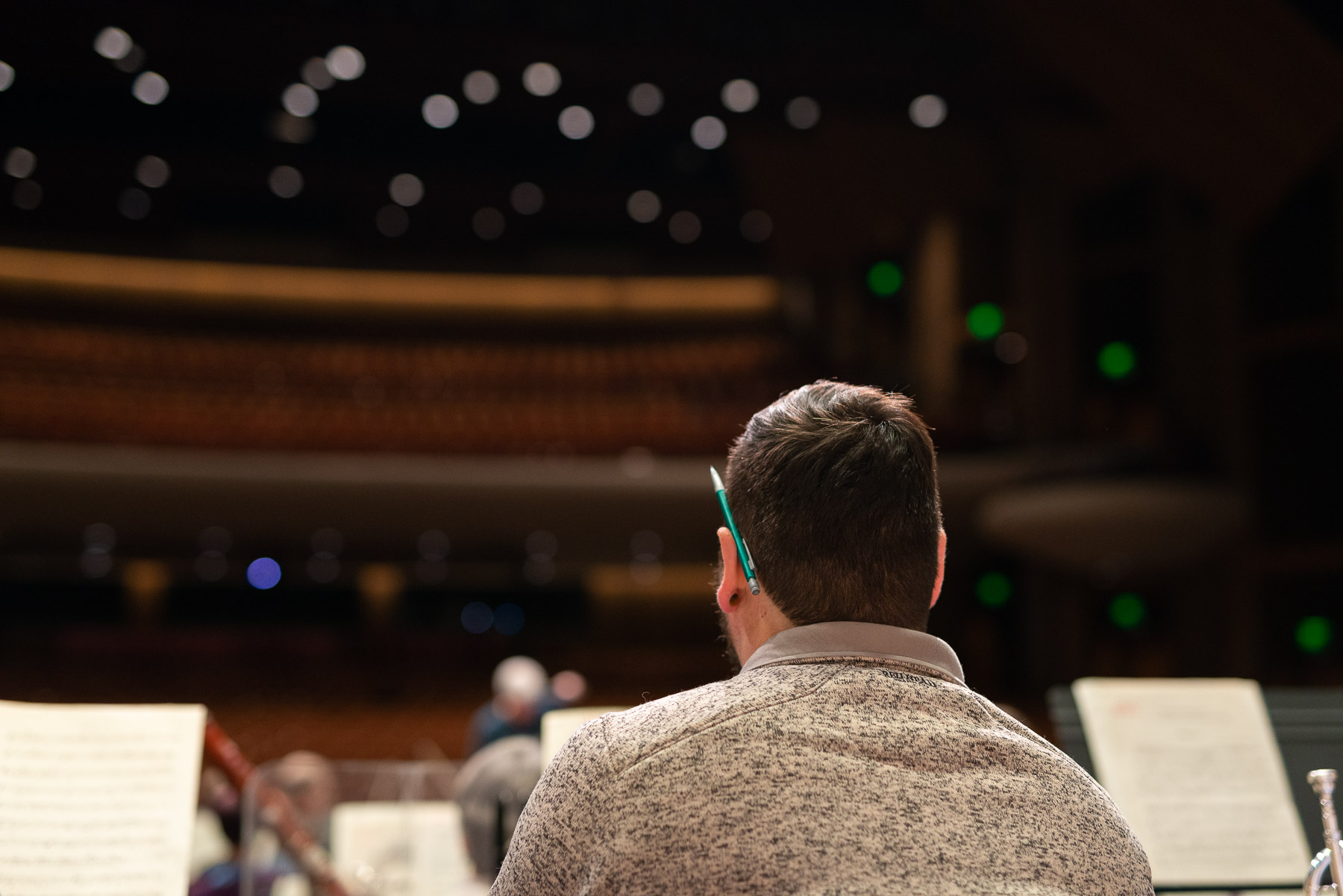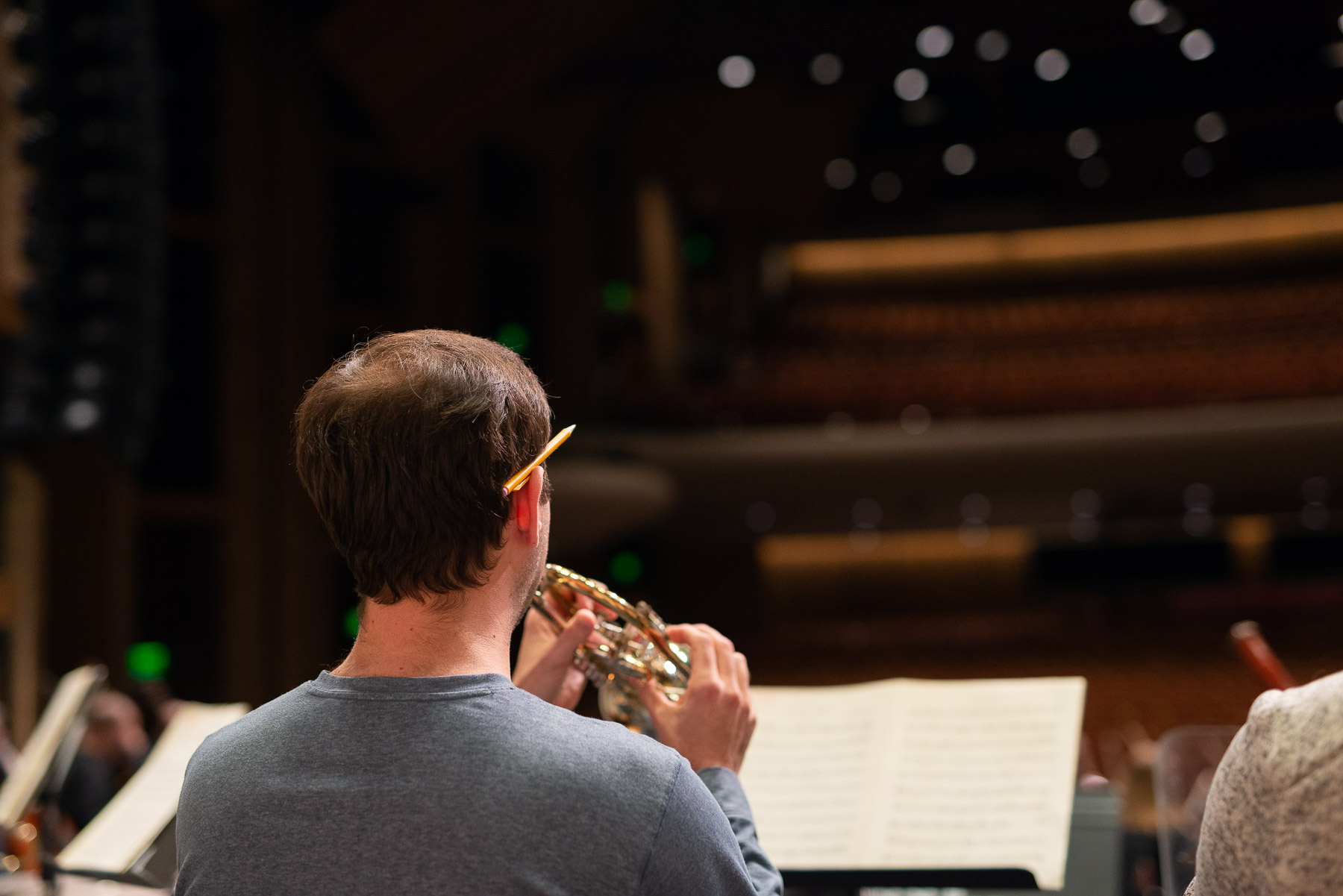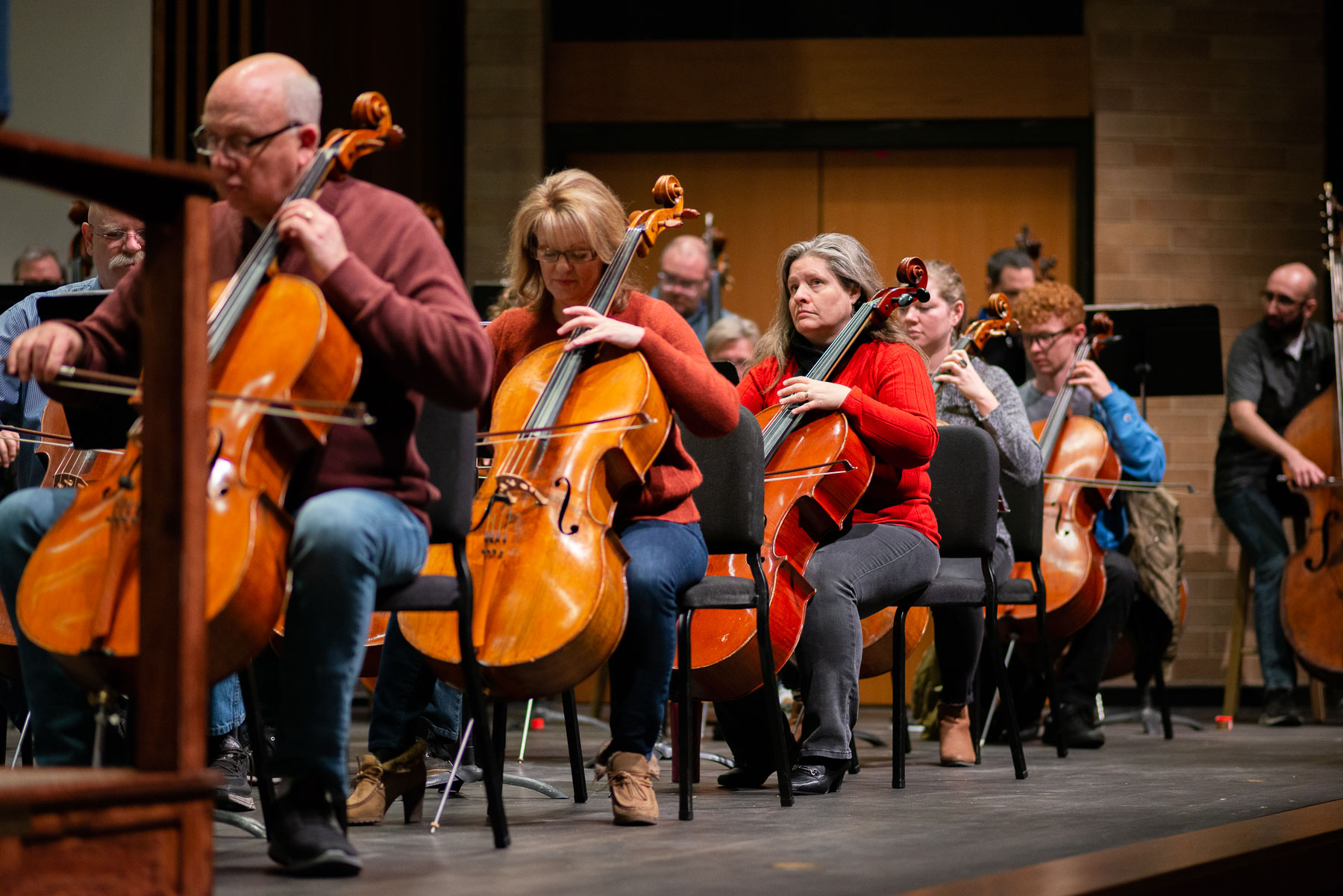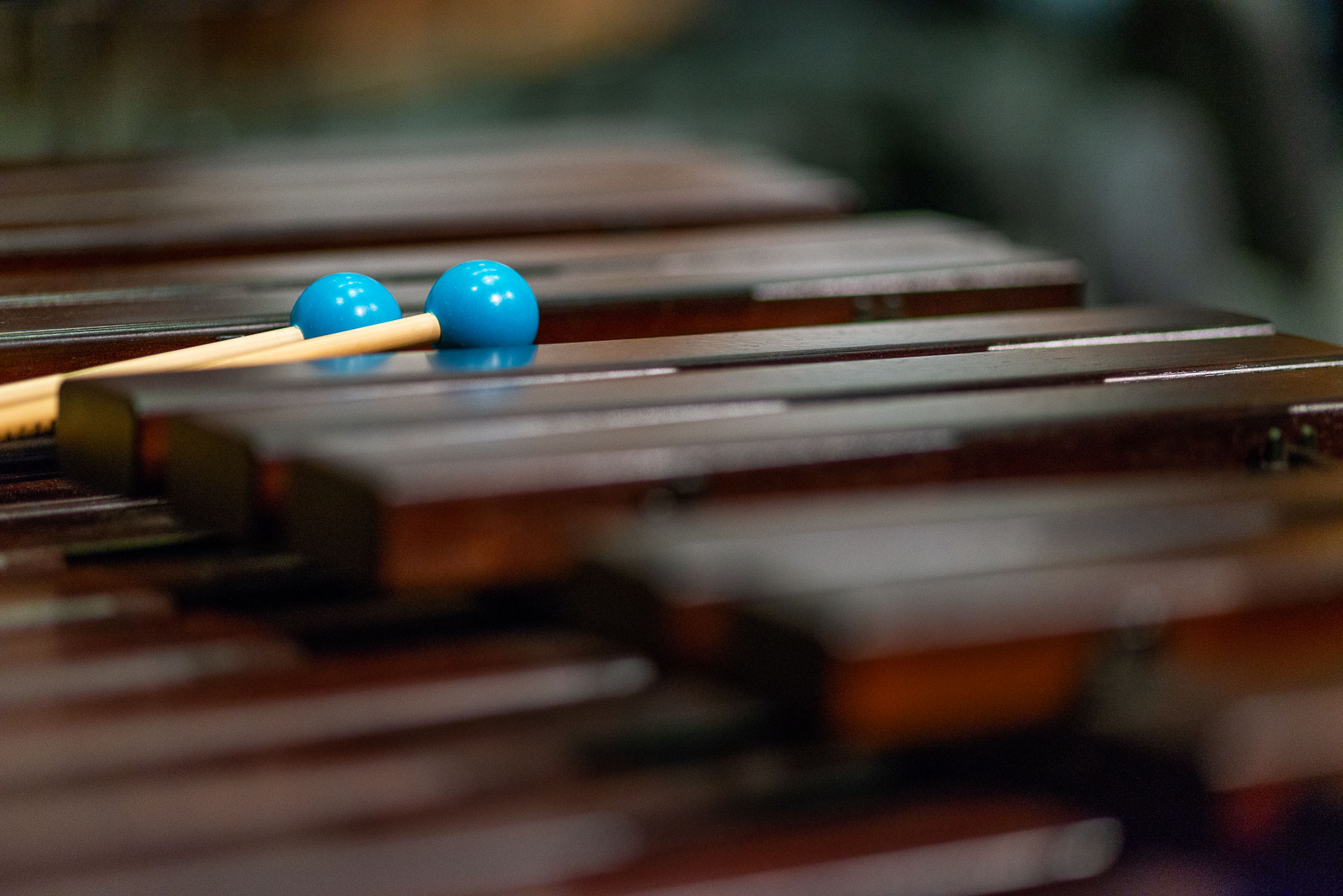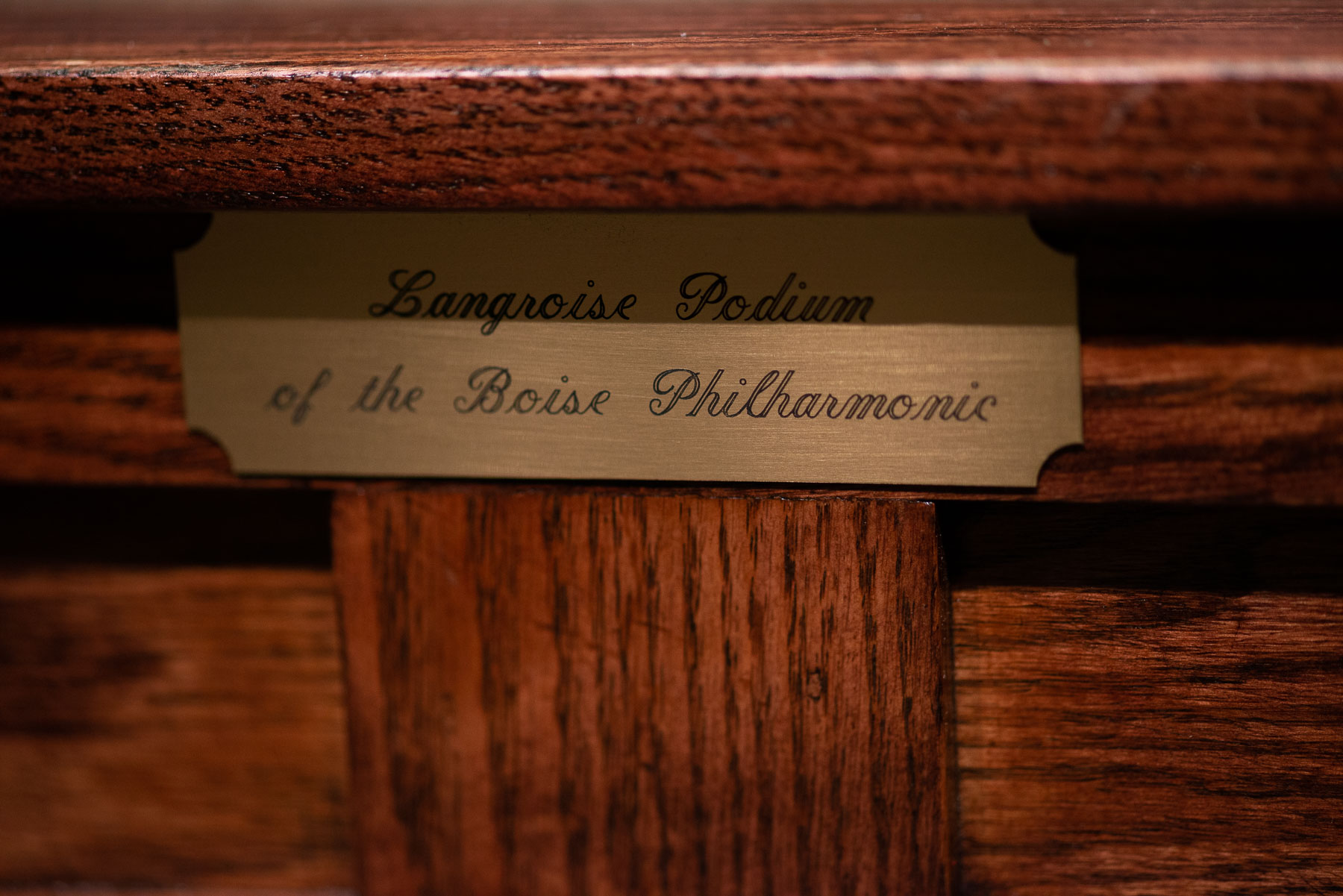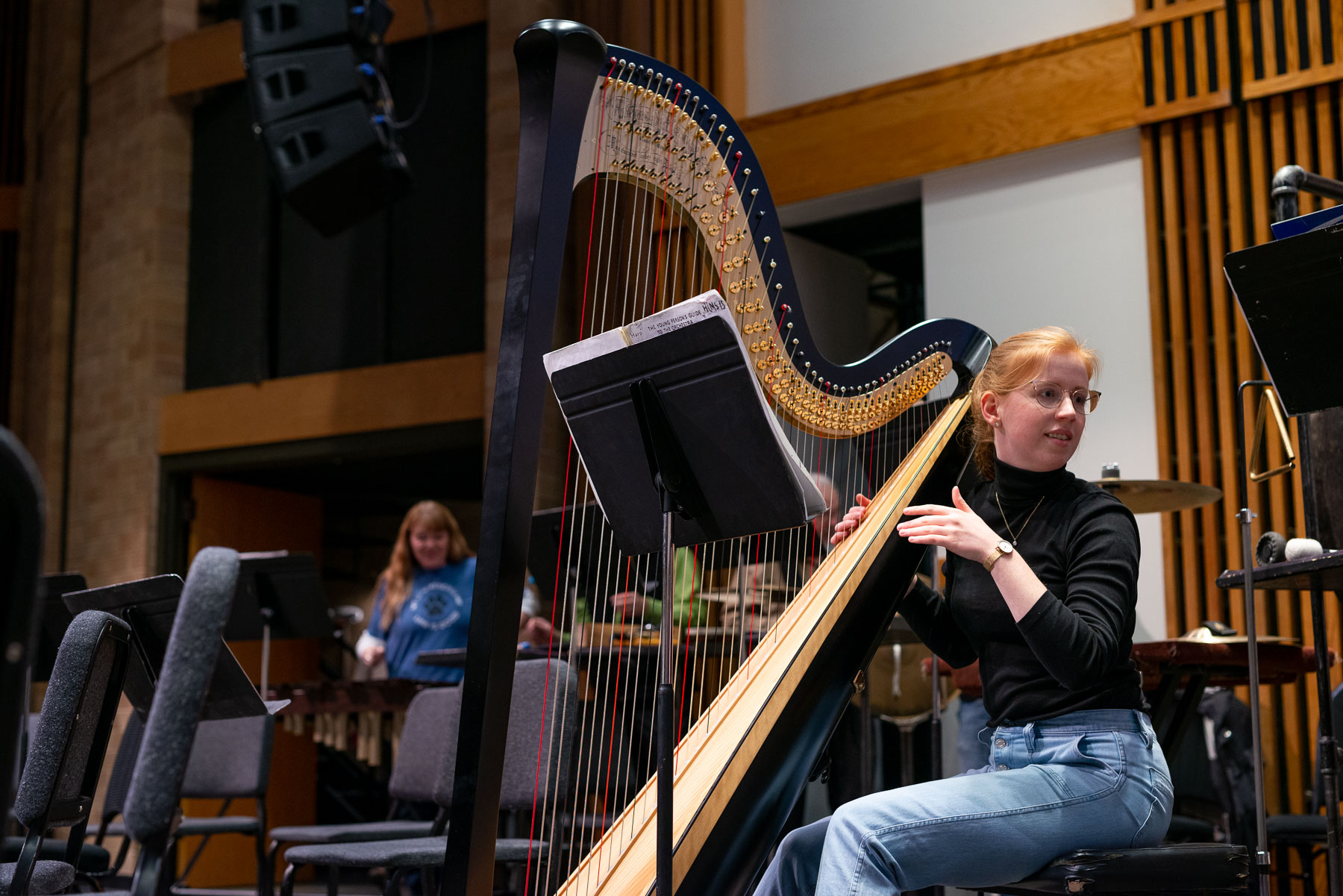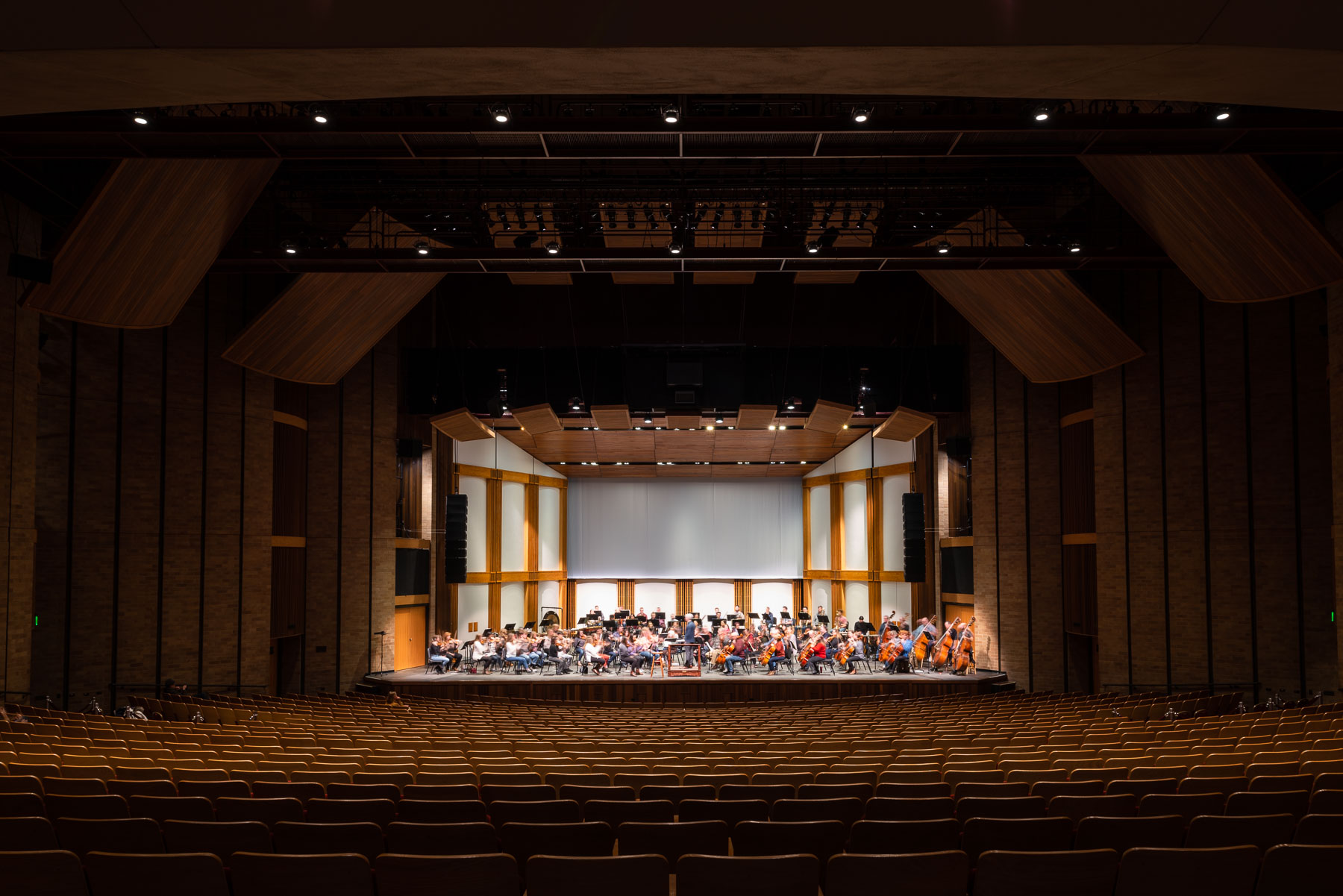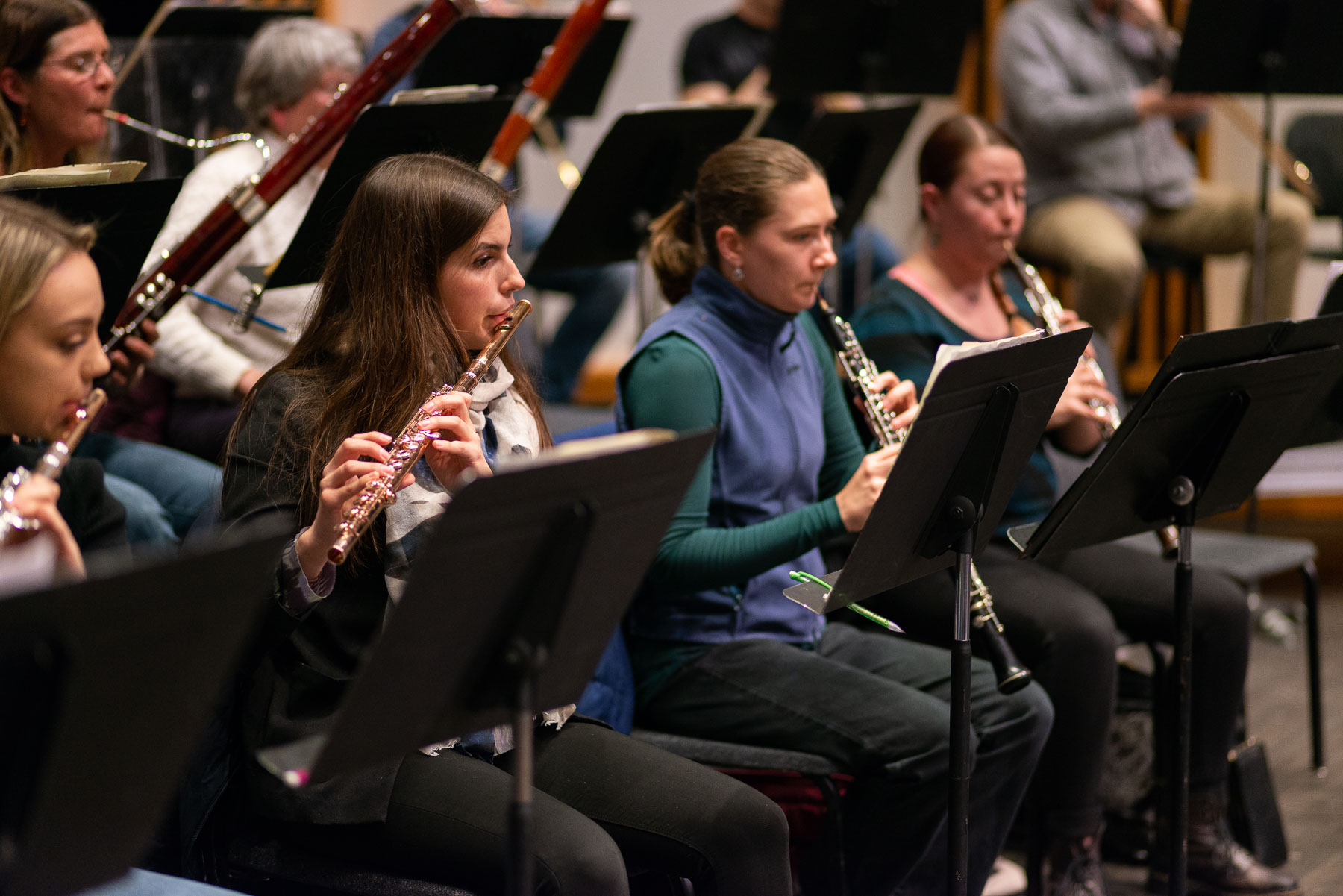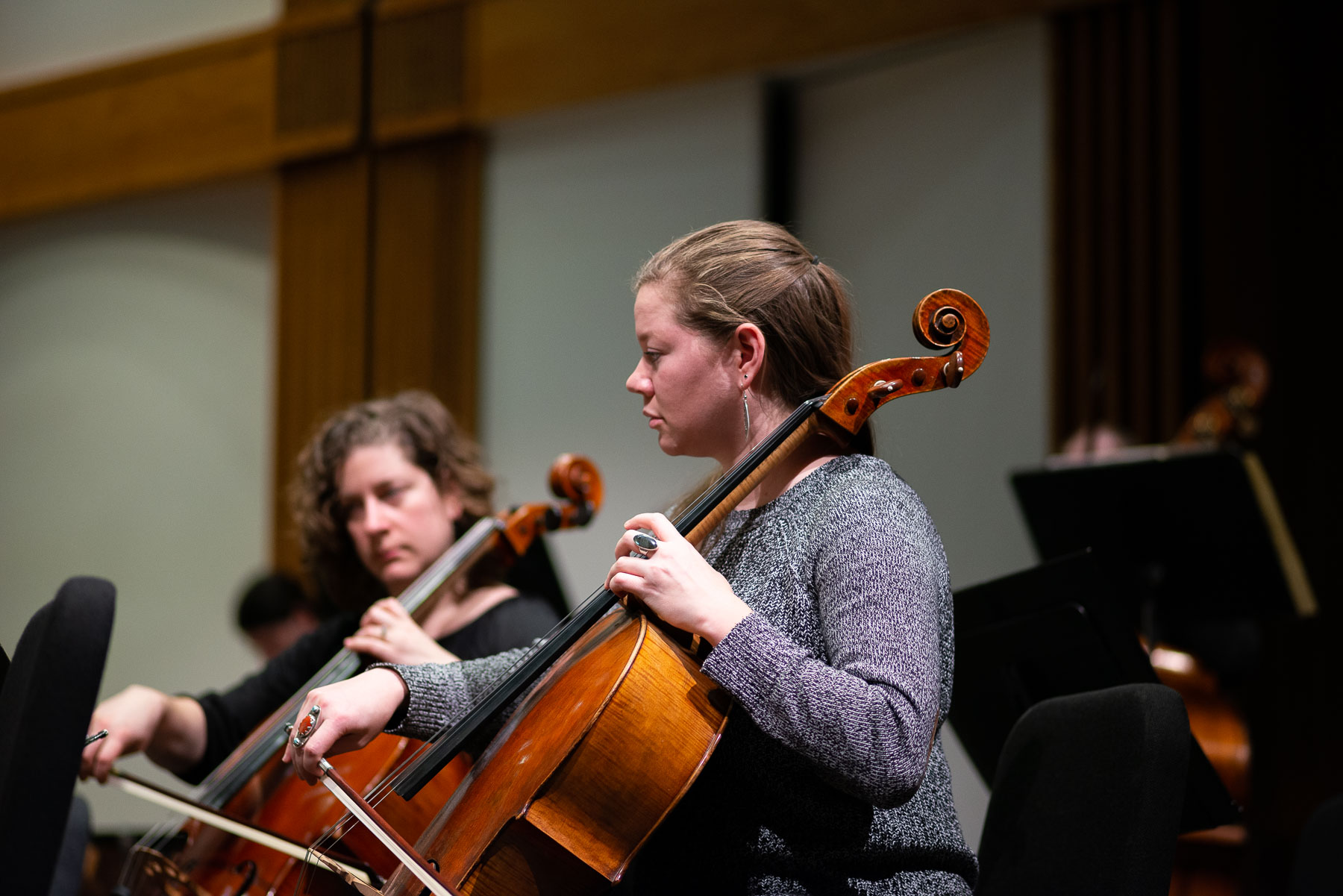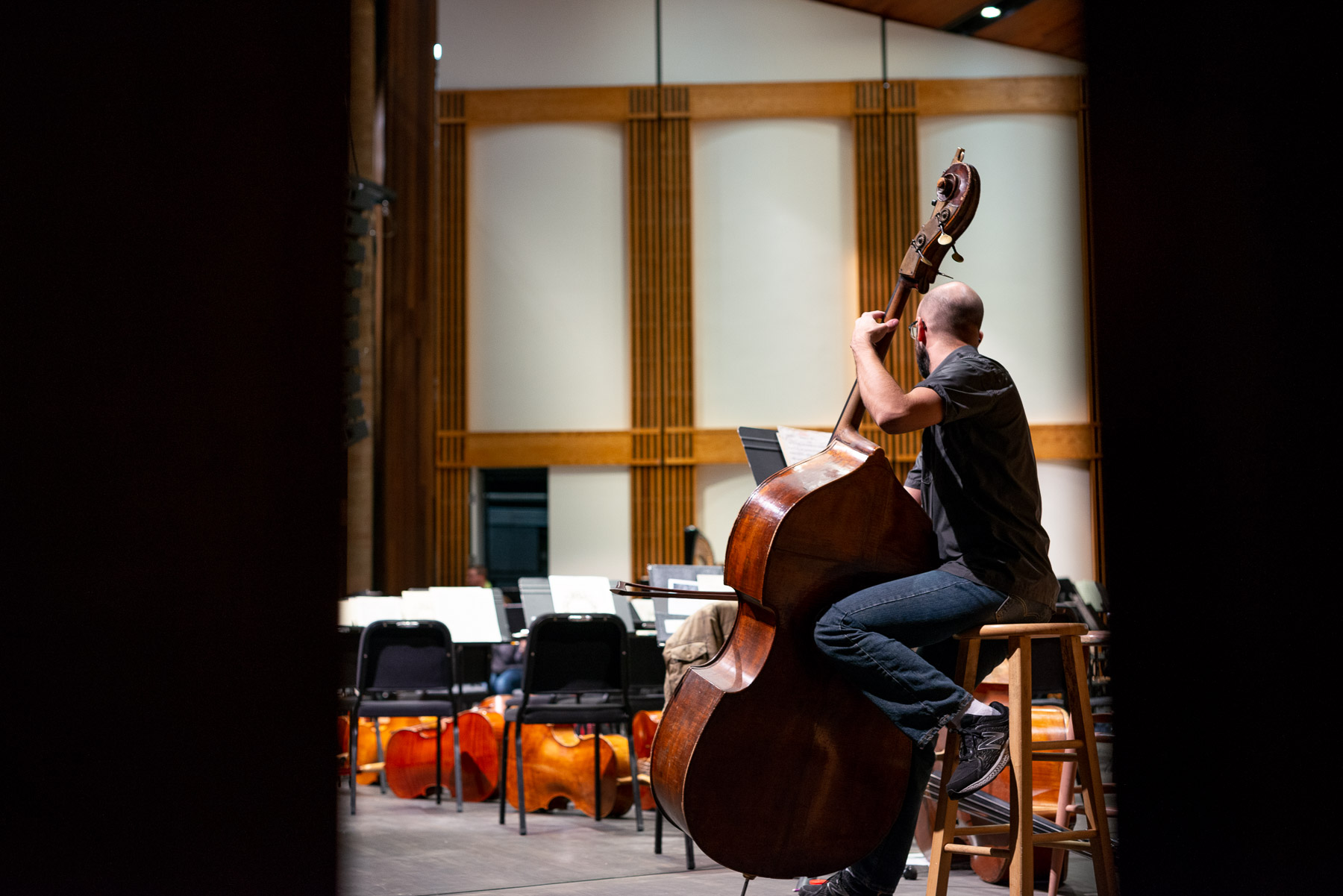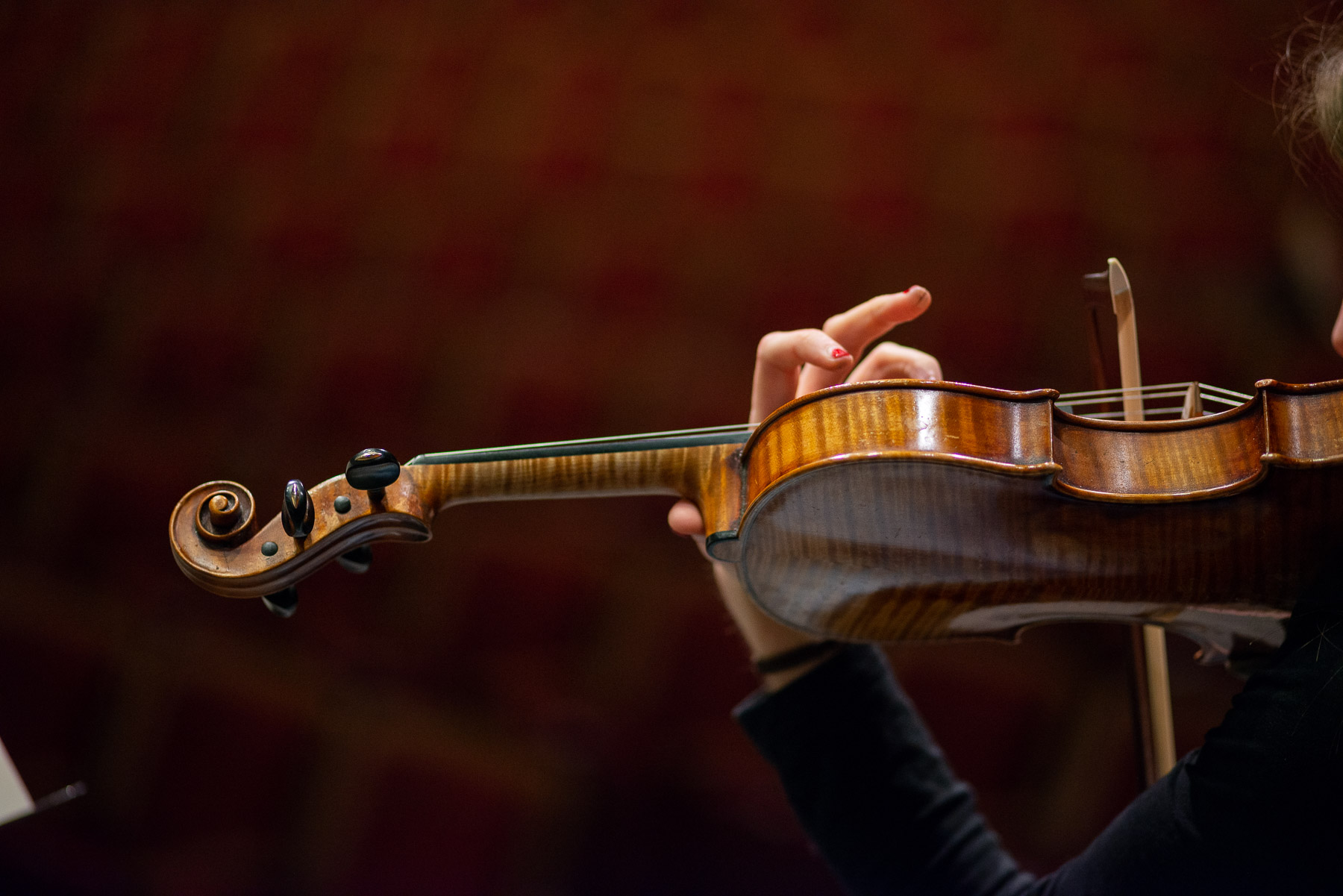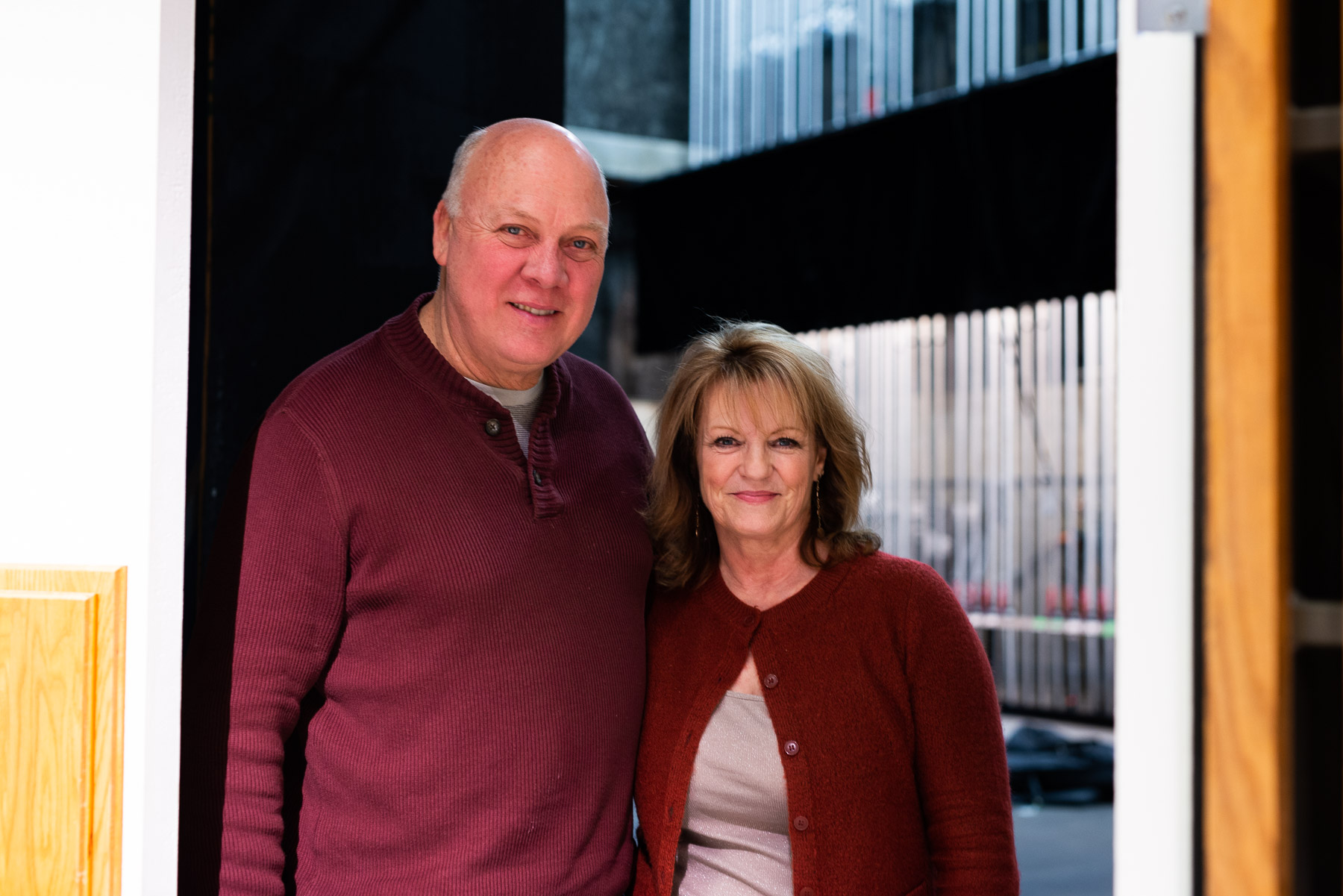Creators, Makers, & Doers: Melaney Johnson
Posted on 2/5/20 by Brooke Burton
Interview & Photography by Brooke Burton © Boise City Department of Arts & History
The Boise Philharmonic, an Arts & History grant recipient, is celebrating its 60th Anniversary this year. In honor of that milestone, we caught up with Melaney Johnson, assistant principal cellist and member of the orchestra for 46 years straight! She is a master at balancing a full life, navigating twists and turns to follow her curiosity and many passions. Melaney is driven to stay engaged with the world at large, while also grounding herself in the values passed down from mom (Thanks, Mom!). We spoke about the incredible energy of rising generations and a kind of passing of the torch—a reality best faced head-on. Words of wisdom from Melaney: Sometimes you’ve got to let others give you a hand, and sometimes you just have to help yourself.
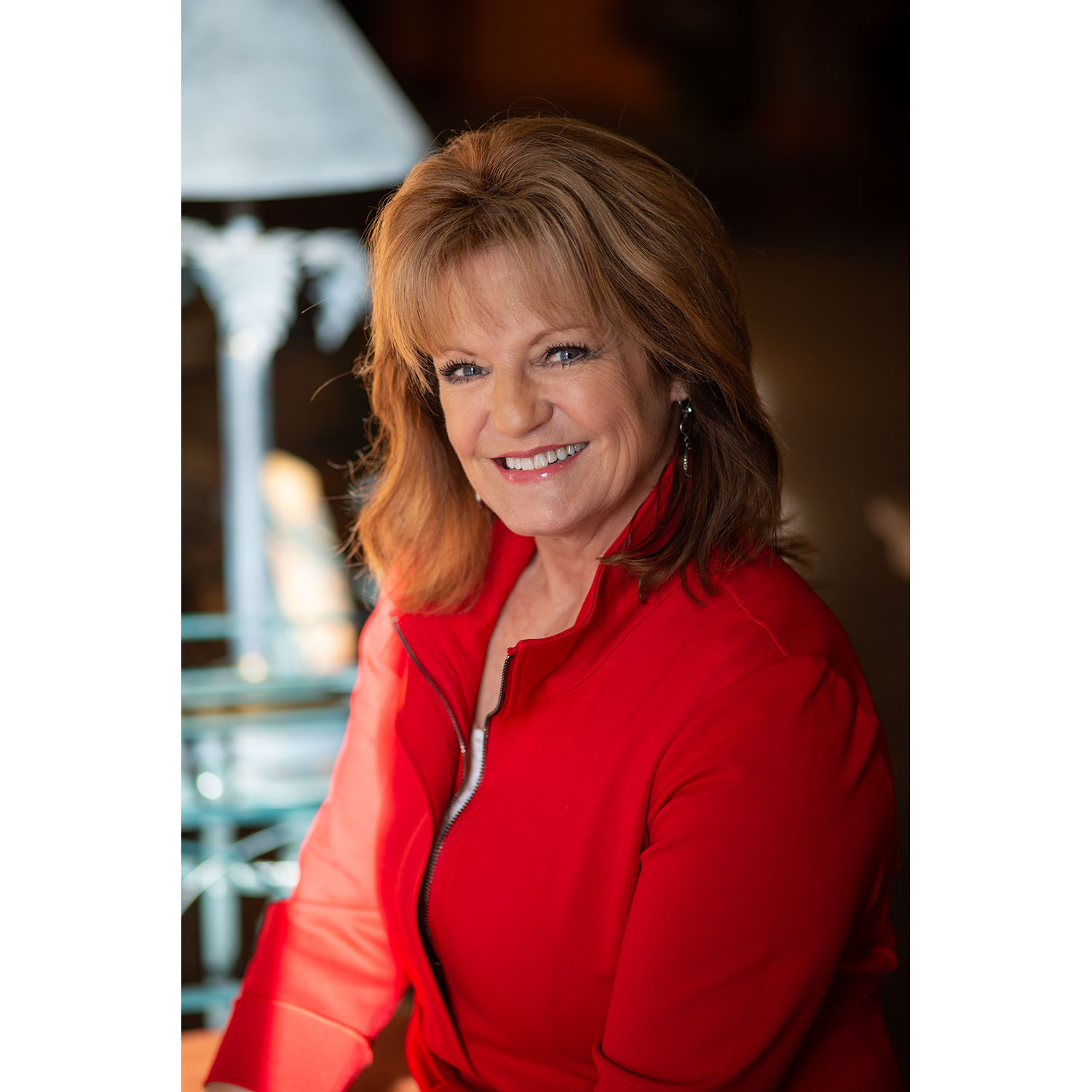 We were talking about the new year—2020—now that you’ve wrapped the holiday concerts. Did we come up with a number for how many times you’ve played the Nutcracker?
We were talking about the new year—2020—now that you’ve wrapped the holiday concerts. Did we come up with a number for how many times you’ve played the Nutcracker?
I can only say that every year, the Nutcracker is performed, with rehearsals, probably nine to ten times a year. Say I only did it for 35 years out of the 46—
Ten performances and rehearsals over 39 years, that’s 390. Does that sound about right?
That would probably be close. [Laughter]
Do have any New Year’s resolutions?
I am not that type of person, but my goal is always to stay busy and do the things I love. I tend to stay extremely active with a lot of things.
What do you love to do?
My husband and I, Ned Johnson, who is the principal cellist of the philharmonic, are avid motorcyclists. We ride in Europe every year. We have covered Europe from stem to stern.
I am so jealous right now.
It’s a lot of fun and also very challenging. It’s something we find very freeing.
Where have you been?
We’ve been up into Norway, and all of the Baltic states, and Eastern Europe. We’ve ridden in Spain, Germany, France, England, and Ireland. We’ve been to all 50 states and up to Alaska. We’ve gone from one side of Canada to the other: Haida Gwaii, the Queen Charlotte Islands, on the west side, clear over to Nova Scotia and Prince Edward Island [on the east side].
Is it just the two of you?
We know enough people in Europe, now, that we now often meet up and ride for a few days, tourings. We meet up with a little group, ride for a week or so, then go off for seven or eight weeks on our own.
Do you get to drive?
I do not. [Ned] is six‑four, I can’t reach the pedals on his bike. [Laughter] So there’s no way.
Help me with the visuals here. Are you wearing a lot of leather?
No, we don’t wear leather. [Laughter] But we do have full protective motorcycle gear; full‑face helmets with Bluetooth for communication. It’s lovely.
Have you had some close calls regarding safety?
Not too many, actually. Ned is a very good defensive driver. Driving in a place like Rome, for instance, is very challenging. They don’t have a whole lot of rules; everybody’s just kind of, darting in and out.
It sounds like go-carts.
But we’ve gotten accustomed to it, you just get used to the way they think. All of Europe is a little bit like that, we’ve learned what to look for.
If you could live anywhere, where would it be?
I absolutely love Spain, but I love Norway as well, so—
How would you compare the two?
Norway is very organized and meticulous. Spain is really quite the opposite. Norway is a very wealthy country, Spain is not so much. Spain is a very warm climate, Norway is cold.
Are there other things in your life that are opposites? Are you drawn to variety?
I’ve never been the type to lead a narrow existence, although, perhaps, I’ve been predictable in a lot of ways.
I would say four decades with the orchestra is very consistent.
Yes, consistent. But I have a love for so many different things. I find the arts, of every kind, not only educational, but fascinating as well.
In what way?
In every place in the world there are things—you think, “Gosh, how could I ever learn or see something new?” but I always do. It’s fascinating to me, and I love that.
Do you think of yourself as a life long learner?
Yes. I’m interested in learning about different traditions, architecture, literature, painting and music.
You love life!
And I love to get lost. One time we got lost in Latvia, we could not get where we needed to go; every road was closed. So we spent the day riding around the country instead, and it’s a small country, but it was fun to get lost.
You enjoy an unplanned detour?
Absolutely. Sometimes we get on narrow, little roads, no more than 6 feet wide, and we’re thinking, “This has to go somewhere,” and so we go. It’s very adventuresome.
Back to opposites, if I were in my car at a stoplight next to you and Ned on the bike—imagine you two in full gear—I probably wouldn’t think to myself, “Well there goes a couple of cellists.” [Laughter]
Not in a million.
Does the cello go on road trips?
Never.
I imagine there’s no room. How did you start playing the cello?
I was born in Berkeley, California. My dad was going to the university there and once he finished we moved into Oregon, to a very small community—Enterprise. In kindergarten, I remember going to a musical program and seeing a cellist playing. It was probably a junior high school student playing.
A school performance of some kind?
Yes, my dad encouraged me after that, because I had shown an interest. Around fourth or fifth‑grade I considered a number of different instruments, but I thought, “All right, I’ll try the cello,” and I loved it. I have never looked back.
Wow.
I was about nine years old. I studied with Catherine Bieler in Boise. She was the principal cellist during the time of the Boise Civic Symphony. She was a wonderful teacher.
Have you taken the role of the mentor as well?
I’d done a lot of private teaching in my earlier years. But I am not as interested in it as I thought I might be. I discovered teaching isn’t the thing that gets me excited.
It doesn’t fill up your cup?
It does not.
What fills your cup?
Well, this is an interesting thing, I’ve loved playing in the orchestra. When I auditioned in 1974, I never really thought that I would get in, but I did. And once I got in I really came to love it. But the lion’s share of the work is at nighttime; I was working full‑time during the day and playing cello at night. There was a moment, I thought, “I don’t know if I can do this.”
Why?
When you have kids, you’re trying to juggle all these things, then you’ve got to be gone day and night. It’s hard on people.
You were a single parent at the time?
Yes. There are just times in life when not everything is smooth. When you have little children and you’re trying to juggle spending time with them, work, the philharmonic, and the babysitters. And, say, they get sick.
That’s hard.
Yeah, it’s really hard. I seriously considered stopping playing at that point.
But you didn’t?
I did not. And there were two reasons, one was because of Ned. He started with the orchestra in ’82, I didn’t know him very well those first few years, but he called me and said, I really think you should reconsider. And that had real value to me. Then Dan Stern, the philharmonic conductor at the time, actually came to my house, it was really surprising; he said, “Look, don’t do this.”
He encouraged you to stick with it?
Yes, “We’ll get it figured out, we will hold this together.” Those two people were instrumental in getting me to reconsider. They gave me some perspective, in the sense that these things will pass, you know, steady as she goes—
Ride the waves? That’s great advice. But in the middle of the storm it feels like the end of the world.
It does. You feel like, “I can’t manage these things if I don’t let go of something, if I don’t lose something.”
Or, “I can’t manage these things and perform up to my standards. So I should just quit.”
Right. You have to be careful about that. But I do always try to maintain a level that I am comfortable with.
That you are proud of?
Yes, but I’ve also realized that the concept of perfection is seriously flawed.
Definitely. [Laughter]
We don’t have that, not one of us. From day to day, there are variations in how we perform.
In art and in life, for sure. What about regrets?
The most important thing I’ve learned, from my mother, is “You can look back at the past, but you can’t change it. The the only thing you have is the rest of today and tomorrow.” I’ve tried to live by that.
But how?!
Wake up every morning and realize it’s a new day; have a great attitude. If you wake up in a bad mood because something’s bothering you, you’ve got to resolve it, in your mind, one way or another. If you owe someone an apology, do it.
I’ve never had to do that before. Just kidding.
You’ve got to take care of it.
Take care of business?
I tend to overrun myself trying to take care of business, but in the end it’s satisfying and relaxing. I think you have to settle in your mind that today, whatever you’re doing, you’re really doing the best you can. So if you’re having a bad day, you just—you accept it. “This is the best I can do today.”
“And maybe I should take a nap.”
Exactly. Maybe a nap has more value today. I like to keep my life well-rounded; I’ve never been an advocate for focusing on only one thing in life.
Is that common with musicians?
Yeah, to get very focused. And for a lot of people it works great, but not so well for me. I want to feel that I’m engaged with the world, rather than just a small piece of it.
There’s a lot of experiences out there to relate to.
Oh, I had an interesting experience in Berlin. I got hit, from the back, by a guy [on the street]. I was just sitting in a chair, and he hit the back of my chair and literally ripped everything off me. I was targeted.
You were robbed!
I wasn’t hurt or anything, but you never really know what’s going to happen. You think you’re being vigilant and careful, but you just don’t always know. Things can happen. I was shaken.
You were assaulted.
Oh, yeah, he took everything. We had just rolled into town and I didn’t do the very thing I should always do; of course, the very one thing.
What’s that?
Well, strip your stuff off in the [hotel room first], leave anything of value there, then go eat. But we were hungry, and tired, and hot, and we just needed something to eat.
So you broke your own rule?
I beat myself up about it, pretty bad—
And you’d already been beaten up once.
I wasn’t hurt, but my mind was damaged. We got fixed back up at the American consulate. And Ned and I spent the whole day walking Berlin. That, perhaps, was the greatest medicine. I was able to work on myself during that time.
That could really make a person paranoid.
Right, absolutely. But you can’t let it affect your whole world, it’s one isolated incident. You have to overcome.
Do you have more empathy, now, for people who have been through similar trauma?
Oh, absolutely. I can empathize to a certain extent, although obviously [my experience] was minor compared to what some people have been through. I’ve always tried to live my life in a compassionate way, anyway. I think helping people is a big deal. Even the smallest ways.
How about on those bad days? When you’re just doing the best you can?
Sometimes you just have to help yourself.
I love you. Are we talking about self care?
Yes, those days you just spend more time with yourself.
What else fills your cup?
I can’t tell you how satisfying it is to sit in the middle of an orchestra and feel the surge of music. It comes up through your feet and fills you up with satisfaction—a feeling of well‑being, and a sense of belonging. You’re with a group of people who are like family; you’ve grown up with them. Today, 95 percent of the orchestra is probably between the ages of 20 and 40. Being with it as long as I have, through several generations, I’ve watched people start and retire, then another group start and retire. I really appreciate and love the energy of some of our younger people in the orchestra. They think differently because of the technological advances; the whole environment is different now. Back in the 70s, you know, computers were just barely getting a foothold. You have to— I think you have to grow.
With?
With the times.
That’s easier said than done.
When you realize you’re kind past that prime, you still love what you do, but you’ve got this energy behind you, pushing you.
Propelling you forward?
Yes, the young people have this incredible energy and power of thinking—they are fantastic musicians, and you can feel that energy. They’re taking that slot. And some days, yeah, I struggle with that. It’s hard to think about it.
Because you want to be right in that energy.
You always want to be there, but you can’t. I think all artists are affected in that way, at least a little.
You’re right. It’s a generational energy.
I love being a grandmother, I have 16 grand-kids now. But I also know that they’re going to be off doing their own lives and—you come to a point where it’s their turn now.
It kind of makes me feel, I don’t know, what’s this feeling I’m having? Sadness? No. No, its sorrow.
There is a sadness to it, because you don’t want to stop. It’s hard to think about it.
It’s like the passing of the torch.
[Chuckles] As I’m getting older, I realize how life requires you to make changes and slow some things down. You’ve got this huge palette of choices—
But you can’t do everything?
You don’t have room for everything; either you don’t want to keep it up, or you just don’t have the energy. So I struggle with that sometimes.
It’s a challenge.
But the energy in the orchestra right now is just remarkable. I love it. It’s energizing in and of itself.
If you could figure out how to put it in a bottle and sell it, we could make billions. What’s something you’re proud of?
I feel like I’ve been a contributing member to society, and I want to continue to do that. And I’m very proud that I’ve done everything with my cello that I ever really set out to do.
Success!
I’m not a soloist for an international orchestra or anything, that wasn’t what I really wanted. But I’m proud of what I’ve done, having been with the orchestra for as long as I have, and maintained that steady commitment.
Steady as she goes.
Downtown Boise
February 5, 2020
This interview has been edited and condensed for clarity.
Creators, Makers, & Doers highlights the lives and work of Boise artists and creative individuals. Selected profiles focus on individuals whose work has been supported by the Boise City Dept. of Arts & History.
